|
Douglas Silas,
Specialist SEN Solicitor 14th June 2021
Give people the chance to learn from a mistake…
We often say, where children are concerned, that if they make a mistake, we should usually not make a big deal out of it, but rather realise that this was an accident and let them learn from it (or us use it as a way to teach them how they can learn from it). We also know not to do something for them, otherwise they will never learn. Yet how many times do we do this in our personal lives with adults? Too often we are too quick to judge and condemn someone when they just make a mistake. We say to ourselves or others, things like: "They should have known better" or "They are always like that". We sometimes even imagine that they have done it deliberately and not even think that it could have just been a mistake. How often do we really try to put ourselves in their shoes and see things from their perspective? They may have said or done something which they genuinely thought would work and now, not only do they have to face the consequences and disappointment arising out of their actions, but they now also have you judging them for not being good enough! Not only is that twice the amount of hurt or shame, it also means that you will have potentially taken away from them a valuable learning opportunity, as people usually become instinctively defensive when they feel like they are being criticised and, not only then try to justify their actions to you or themselves, but also become more entrenched in believing what they did or said was reasonable and find even harder to then admit that it was a mistake, to you or themselves. And it probably was also a mistake that you would have wanted to learn from, if you had been in their place. So, next time something like this happens to someone around you (adult or child), try not to be too quick to judge them and give them the chance to correct their mistake. It is what you would want somebody to do for you if the roles were reversed.
In this week's SEN Update, you will find sections entitled:
I know how busy everyone always is, so please feel free just to read the sections that are of interest to you or read everything; the choice is always yours.
Don’t forget, to ensure that you never miss one, you can get my SEN Updates personally by completing your email details above,
or by following me on one of the social media platforms I use (i.e. Twitter/Facebook). You can also share this SEN Update with others (please only do so if it may be relevant to them) by using one of the icons, usually to the right or at the bottom of this page.
THINGS USUALLY COME IN THREES (MORE GOVERNMENT GUIDANCE)
Things usually come in threes, don't they? Well, it's time for more Government guidance/information and this time it is three things at once! I received an email this week from the SEND Division at the Department of Education (DfE), entitled: 'Summer Schools, Transition to employment toolkit & new NSPCC/DfE helpline', which said: "Dear colleagues, There are three things that we would like to draw your attention to this [week]: Summer schools: updated funding allocations and guidance As part of the wider recovery package to support children and young people with their mental health and wellbeing and to support recovery from the impact of missed face-to-face learning, £200m of funding is available for secondary schools to deliver summer schools this year. Over 80% of eligible mainstream schools have now signed up to the programme. To maximise the funding available for special schools and alternative provision settings, we have now calculated their funding allocations on the basis of 50% of their year 11 cohort being offered a two-week summer school, in recognition that these settings generally have few year 7 pupils. For any special schools or alternative provision settings whose year 7 cohort is larger than their year 11 cohort, those schools’ initial funding allocations will stand. Today, we published a form at https://form.education.gov.uk/service/summer-schools-programme, asking schools to confirm their arrangements for their summer school by 30 June. Schools that did not complete the initial sign-up form can still join the programme by completing the June confirmation form. Subject to overall take-up, schools may be able to claim funding to cover additional places and can request this in the June confirmation form. Those schools will be notified quickly of any additional funding, but should plan to deliver their summer school within their published maximum allocation in the meantime. The guidance on summer schools reflects the change to SEND/alternative provision funding. It also confirms the conditions of funding, has an expanded section on academic, enrichment and mental health resources and provides a link to the DfE summer schools webinar which includes input from headteachers and other experts. If you have any questions, please contact us at [email protected]. Transition to employment toolkit launched by Ambitious about Autism and the Autism Education Trust Ambitious about Autism and The Autism Education Trust have today launched a new employment toolkit to support autistic young people into the job market. The Transition to employment toolkit is free to download and aims to prevent autistic young people falling out of education, employment or training when they leave school. The toolkit is not just for young autistic people to use, but also for careers professionals and employers, to help them better understand the needs and skills of young autistic people and support them into further education or work. Sections of the toolkit can be easily downloaded and edited and are designed to be used flexibly. Launch of new NSPCC/DfE helpline for children and young people subjected to unwanted sexual behaviour in an education setting A new UK wide dedicated helpline has been set up by the NSPCC and the Department for Education to support those who may have been subjected to unwanted sexual behaviour or abuse whilst in an education setting. The helpline is equipped to cover personal incidents or concerns for others, and for both recent and historical events. DfE has set-up two social media resource packs on Dropbox containing assets to promote the helpline, one to target children and young people, and another for adults. We ask that education settings, along with wider sector organisations, use these resources on their own channels, and also cascade to their community networks. All amplification would be extremely valued, and ultimately help reach someone who vitally needs this support. Many thanks, Special Educational Needs and Disability Division"
THE IMPACT OF COVID-19 ON TRIBUNAL HEARINGS (REPORT)
I know that this will not interest/affect everybody, but if it does interest/affect you, I wanted to bring it to your attention, as it is very interesting. The Legal Education Foundation has just produced a report this week entitled: “Understanding the impact of COVID-19 on tribunals: The experience of tribunal judges“ which was commissioned by the Senior President of Tribunals to understand the impact of COVID-19, identify opportunities for improvement and guide future developments. (If you don't know, The Legal Education Foundation is an independent grantmaking foundation that focuses on the role of legal education in helping people understand and use the law as a tool for change, as they know there are many people who cannot obtain justice in relation to everyday problems). The report examines the impact of remote hearings under COVID -19 and sets out 35 recommendations to guide their use as the tribunals move toward recovery and their website says: "The grant-giving charity The Legal Education Foundation has today published research that sheds light on the experience of tribunal judges as they adapted to the use of remote hearings in the early months of the pandemic. The report: “Understanding the impact of COVID-19 on tribunals: The experience of tribunal judges“ was commissioned by the Senior President of Tribunals to understand the impact of COVID-19, identify opportunities for improvement and guide future developments. ... The survey on which the report is based captured the experiences of over 1500 tribunal judicial office holders who were asked to reflect on the remote hearings they had taken part in between March and July 2020. The 35 recommendations presented in the report set out immediate practical and longer- term steps to improve the experience of judicial office holders and to ensure that remote hearings are deployed in a manner that secures safe, effective and efficient access to justice. ... The research gathered the views of judicial office holders on a range of topics including: i.) their satisfaction with the support and guidance they were offered; ii.) their views on the technology that was used, iii.) their perceptions of the impact of remote hearings on the practical and emotional barriers to participation experienced by appellants; iv.) the effect of proceeding remotely on their ability to identify and make adjustments for vulnerable appellants; v.) the influence of remote hearings on the structure of hearings and vi.) any changes to their decision-making process that had occurred in response to proceeding with hearings remotely. The survey also explores the impact of remote hearings on the well-being and morale of judicial office holders. ... The report’s recommendations include:
You can read the full report here.
LATEST NEWS ONLINE
Again, here are other news articles that I found this week: Is sleep a ‘magic pill’ for teen wellness in a mental health crisis? Girls asked for nudes by up to 11 boys a night, Ofsted finds Unions call for return of masks to secondary classrooms in England After a year at home, children with disabilities deserve priority vaccination ‘Tutors change daily’: headteachers call for schools to control England Covid catchup money
Again, aside from clicking on the relevant links for more information, I would also remind you of the very useful resources and information provided on the following websites:
- IPSEA - Council for Disabled Children - Contact - Scope - Special Needs Jungle I would also highlight again the fact that you can now get a digital copy of the magazine: Autism Eye which is very helpful to any parents or professionals involved with children/young people with Autism. Keep safe until next week. With best wishes Douglas
P.S. I understand that there are many educational items, news articles, or other useful resources on the web, so I would be very grateful if you could let me know of any that you find that you think that others may find useful, so that I can direct people to them.
How useful do you find my SEN Updates?
Created with Quiz Maker
Douglas Silas,
Specialist SEN Solicitor 1st February 2021
Typical!
After the last couple of weeks, with a lot of guidance and other information being sent out by the Department for Education (DfE), which I shared with you here, as I made my way through this past week, it had seemed a bit quieter now on that front, so I therefore thought that my update this week could be a bit lighter. However, just as I was packing up from work on Friday afternoon for the weekend (I finish earlier on Fridays), I received another very detailed email sent out by the DfE, this time entitled: '**SEND NEWSFLASH** UK disability survey; details of disability and access ambassadors; schools' SEND publication requirements & update on access to work funding' (do they pick their timings deliberately?) So, rather than my telling you everything that it says here (which would then not allow me much room for anything else really), I am only going to refer to one main part of it below in my first section of this update, which I think will be useful to most people.
Don’t forget, to ensure that you never miss one, you can get my SEN Updates personally by completing your email details above,
or by following me on one of the social media platforms I use (i.e. Twitter/Facebook). You can also share this SEN Update with others (please only do so if it may be relevant to them) by using one of the icons, usually to the right or at the bottom of this page.
The main part of the DfE's email, which I thought would help most people by my repeating here, states as follows:
'Duties on and expectations of schools over publishing material online We have updated our summaries of the material that schools must or should publish online, including in relation to: · SEN Information Reports, which need to be updated at least annually · details of how a school complies with the public sector equality duty, with information which needs to be updated every year · a school’s equality objectives, which need to be updated at least once every four years · contact details of SENCos Schools will also typically wish to publish the Accessibility Plan, that they have to update at least once every three years. Information as to that Plan needs to be included in their SEN Information Report. There are no changes to the law and our guidance on publishing of the above, but in the updates of our summaries we have sought to bring together all the relevant material in one place and to set it out clearly. We invite Heads, SENCOs and governors/trustees to consider whether the above material on their websites remains up to date. The relevant links to our summaries of the requirements and expectations of schools are: - for maintained schools, https://www.gov.uk/guidance/what-maintained-schools-must-publish-online - for academies/free schools, https://www.gov.uk/guidance/what-academies-free-schools-and-colleges-should-publish-online
The other bit of Government information that I was already intending to bring you this week was from OFSTED and entitled: 'Remote education research (research and analysis)', whose introduction states:
'Since March 2020, the need for and the expectations placed on remote education have changed considerably. From the middle of March and for most of the summer term, the COVID-19 (coronavirus) pandemic led to school buildings in England being closed for most pupils. There was no requirement to provide remote education during this period, although some guidance was published. Schools were open to all pupils from September 2020 but, given the need for class and year group bubbles and self-isolating pupils, the Department for Education established a continuity directive for mandatory remote education. School buildings were again closed to most pupils in January 2021. From that point, remote education has been a requirement, so that pupils can continue with their learning. At the beginning of January, we published guidance on ‘What is working well in remote education’. As England entered a third national lockdown, that short paper was intended to provide the sector with some immediate advice and reassurance on useful remote education approaches that had been distilled from our recent research activities. Remote education matters. Until mass vaccination is achieved, local lockdowns, class and year group bubbles and individuals self-isolating are likely to remain part of daily life. This will have a continuing impact on schools’ capabilities in delivering a broad and balanced curriculum to all pupils. Schools are likely to continue to rely on remote solutions to provide coverage and mitigate against learning loss. Furthermore, evidence from our interim visits suggests that given the amount of time and resources that school leaders have placed into developing their remote solutions over the past 10 months, it is likely that schools will incorporate aspects of remote education into their teaching after the pandemic. Understanding what successful remote education is has been a priority for Ofsted during the pandemic. Education providers have of course been learning ‘on the job’, and many will now be well advanced in their own understanding. This paper sets out what we have learned through our research and visits and we hope providers find it helpful.' It's contents are set out then as follows:
Also, there were lots of thought-provoking new articles this week in the media - here's a few if you are interested:
- 'Knackered and confused.' That's just the parents - Opening schools a national priority, says government - Boris Johnson hopes schools in England will reopen from 8 March - Covid-hit pupils 'should be allowed to repeat a year' - Behind closed bedroom doors, a teenage mental health crisis is brewing - Nursery staff are being treated like cannon fodder so 'higher-value' work can go on - COVID-19: PM's letter praising families for efforts during pandemic criticised as 'kick in the teeth'
Where can I find further information?
Again, aside from clicking on the relevant links for more information, I would also remind you of the very useful resources and information provided on the following websites: - IPSEA - Council for Disabled Children - Contact - Scope - Special Needs Jungle I would also highlight again the fact that you can now get digital copies of the magazines: SEN Magazine and Autism Eye which are both very helpful to any parents or professionals involved with children/young people with SEN. Keep safe until next week. With best wishes Douglas
P.S I understand that there are a number of educational or other useful resources now on the web, so I would be very grateful if you could let me know of any that you find that other people may find useful, so that I can direct people to it.
How useful do you find my SEN Updates?
Created with Quiz Maker
by Douglas Silas, specialist SEN solicitor. Here is my update for this week. It’s been a bit of a slow week again for SEN news I am afraid. Things seem to be really slowing down for summer now. However, although this now will be my last update on SEN and Covid-19 (don’t worry, I am going to restart my SEN Updates again as usual from September), I have still managed to find some useful resources/information for you again this week. I hope that this helps people again. 1. What has happened this week? The first thing that I want to bring your attention to is the website of Well Child, the charity for sick children. They have a lot of advice and resources available to or parents and carers of children with serious health conditions , including help accessing PPE (Personal Protective Equipment) and supplies, plus information for companies and stay-at-home fundraising suggestions. I was very taken by their page called the ‘COVID-19 Direct Response Service’, which states: “In response to the COVID-19 pandemic, we are offering a Direct Response Service to get the Personal Protective Equipment (PPE) and support with supplies that parents and carers need”… READ MORE The next thing that I want to draw you attention to is the webinar this week on 23 July 2020 entitled: ‘Returning To School In September’ being put on by 39 Essex Street chambers, where leading lawyers, Polly Sweeney, Steve Broach and Alice Irving will be delivering a webinar on the legal rights of children and young people with special educational needs and disabilities returning to School in September and which says it will cover issues such as: ‘The latest government guidance and what is expected of families from September’; ‘What support and provision children and young people with SEND will be entitled to receive’; ‘Do children and young people with SEND have to return to School’; ‘Children and young people who have been shielding’; ‘In what circumstances parents can be fined for non-attendance’… READ MORE The last thing that I want to refer you to here is actually not a resource or useful information at all, but just a news piece that I found on the BBC’s website which I thought may be of interest to you, entitled: ‘'No plan B' for exams if schools disrupted in autumn’, which said… READ MORE 2. What does all of this mean? I guess we will just have to wait and see what happens now in September/the Autumn. I don’t think anybody could have predicted what has happened in the last 4/5 months or so and it would be foolish for me to try and predict now what is going to happen in the next 4/5 months. However, I am going to leave you on an as positive note as I can if I may before I also break for the summer, by sharing a link to a video with you that I was sent a few months ago called: ‘The Great Realisation’. I apologise if you have already seen it, but it is so good that it is worth watching twice. I hope that you find it as uplifting as I have done… 3. Where can I find further information? Aside from clicking on the relevant links for more information, I would again remind you of the very useful resources and information provided on the following websites:
- IPSEA - Council for Disabled Children - Contact - Scope - Special Needs Jungle I would also highlight again the fact that you can now get digital copies of the magazines: SEN Magazine and Autism Eye which are both very helpful to any parents or professionals involved with children/young people with SEN. Keep safe until next week. With best wishes Douglas P.S I understand that there are a number of educational or other useful resources now on the web - I would be very grateful if you could let me know of any that people are finding useful, so that I can direct others to them. P.P.S. I also want to highlight again the fact that there are currently a lot of scams out there, both online and through texts/WhatsApps. Please be extremely careful and help yourself and others not to become victims. You can learn more at: www.FriendsAgainstScams.org.uk. by Douglas Silas, specialist SEN solicitor 1. What has happened this week? On Monday, there was an article on the BBC's website entitled: "'Virus could be here for year' so schools must open, says education secretary”, which said: "The coronavirus could be with us for a year or more" so children cannot continue to stay out of school for "months and months" longer, says Education Secretary Gavin Williamson. But he told BBC Breakfast he recognised there would be "initial nervousness" among parents about children returning. Teachers' unions have warned it is not safe to open England's primary schools on 1 June. On Sunday, Boris Johnson accepted some schools would not be ready to open. The education secretary said the first steps for returning to school had to begin. "We cannot be in a situation where we go for months and months where children are missing out on education," said Mr Williamson. This has not persuaded teachers' unions - with no sign of a resolution to the stand-off over bringing increasing numbers of children into schools. Geoff Barton, leader of the ASCL head teachers' union, said the government had "not done a good job in building confidence in its plans". Ministers were failing to win "trust and confidence", said Patrick Roach, leader of the Nasuwt teachers' union. Mr Williamson told BBC Breakfast that he recognised there would be hesitation among parents. "We do realise there will be an initial nervousness about the return of schools," he said. And he said it was right that there would be no penalties for parents who decided to keep children at home. Asked whether parents should now rely on their "instincts" rather than official guidance, he said he hoped that parents would start to send their children back to school. He said the guidance for returning to school ensured a "maximum amount of safety" - and going back would be important for children's well-being as well as helping them to catch up on lost lessons. Schools have remained open for the children of key workers and vulnerable children - and the government's plan is for all pupils in Reception, Year 1 and Year 6 to return to school from 1 June. But many local authorities have already indicated that their schools will not be ready to open, or that schools will have their own variations on which pupils will return. Mr Williamson said there was no reason why most schools should not open - but gave no indication of any sanctions for those that did not. The first children returning to secondary school, in Years 10 and 12, will begin on 15 June. School leaders have questioned the feasibility of the next stage of reopening, which would have all primary children back in school together for the last month of term. The Department for Education says this part of the plan is now "under review". In Scotland and Northern Ireland there are plans for a phased return to school for pupils, starting in August. Schools in Wales will not go back on 1 June, but a date has not yet been set. On Tuesday, the Government then issued guidance called: "Supporting children and young people with SEND as schools and colleges prepare for wider opening”, which stated: “From the week commencing 1 June 2020 at the earliest, we will be asking primary schools to welcome back children in nursery, reception, year 1 and year 6, alongside priority groups (vulnerable children and critical worker children). From the week commencing 15 June 2020 at the earliest, we will ask secondary schools, sixth form and further education colleges to offer some face-to-face support to supplement the remote education of year 10 and year 12 students who are due to take key exams next year, alongside the full time provision they are offering to priority groups. As settings prepare for wider opening, this guidance provides information on provision for children and young people with education, health and care (EHC) plans and others with complex needs, such as children and young people with special educational needs and disability (SEND) who do not have an EHC plan, but for whom the educational setting or local authority has exercised its discretion to do a risk assessment and offer a place at an educational setting1. Throughout the coronavirus (COVID-19) outbreak, educational settings have been asked to ensure that vulnerable children and young people can attend where appropriate, including those children and young people who have an EHC plan, and for whom it is determined, following a risk assessment, that their needs can be as safely or more safely met in the educational environment. As settings prepare for wider opening, they should continue to offer places to vulnerable children and young people and should look to bring back more children and young people with EHC plans in these target year groups. Their return should be informed by their risk assessments, to help educational settings and local authorities ensure that the right support is in place for them to come back. From 1 June we will be asking special schools and hospital schools to work towards a phased return of more children and young people, without a focus on specific year groups and informed by risk assessments. From 15 June, we will be asking specialist post-16 institutions to work towards a phased return of young people, without a focus on specific year groups or proportion of learners and informed by risk assessments….” By the end of the week, we heard that the Government had also issued an extension of their previous Notice under the Coronavirus Act 2020 to the end of June 2020 to relax legal duties in relation to the laws surrounding SEN and in the past couple of days, Vicky Ford MP, the Parliamentary Under Secretary of State for Children and Families, has issued another letter addressed again to: "To all children and young people with special educational needs and disabilities (SEND), their parents/carers and families, and others who support them", which stated: “I would like to express my sincere thanks for everything you are doing at this challenging time. I also wanted to explain how the wider opening of schools and other educational settings may affect your family. This letter has been distributed through as many of our partner organisations as possible. I would be grateful if you could also circulate it widely. I realise that this is a particularly difficult time for children and young people with SEND and their families, and I’m sure that you have lots of questions. As you will be aware, on 28 May the Prime Minister announced that the Government’s five tests had been met and, based on all the evidence, primary schools and early years’ settings will be opening to more children and young people from the week commencing the 1 June. Secondary schools and colleges will begin to offer some face-to-face support to Year 10 and 12 students and 16-19 learners taking key exams next year. On 26 May, the Department for Education (DfE) published guidance to help colleagues working in local authorities and educational settings to support the needs of children and young people with SEND through the process of wider opening to more children and young people. The full guidance is available at this link: https://www.gov.uk/government/publications/coronavirus-covid-19-send-risk-assessment-guidance We have produced this guidance with help from SEND sector organisations, including parent carer forums and representatives, to outline pragmatic approaches that local authorities, educational settings, and parents or carers may wish to take to support children and young people with SEND throughout the coronavirus (COVID-19) outbreak. This guidance updates our existing advice to local authorities on risk assessments to determine which children and young people should be attending their education setting. It now also includes advice on how to approach the phased return to face-to-face education for children and young people with SEND. I want to assure you that safety will always be our primary concern. Local authorities and educational settings should work with families to bring children and young people back to face-to-face education to ensure they receive the support that every child or young person deserves. This new guidance sets out that children and young people with SEND in mainstream and Alternative Provision settings who have not been attending and are in eligible year groups should experience the same return to their school/college or contact with their teachers as their peers without SEND in the same year group. We recognise that each individual child with SEND has their own needs, so decisions should be based on each child’s risk assessment with families and schools working together. Special schools, special post-16 institutions and hospital schools should work towards welcoming back as many children and young people as can be safely catered for in their setting based on risk assessments but not using their year group as a primary deciding factor. Educational settings and local authorities should keep risk assessments up to date, to ensure they are able to offer places to pupils and students, whatever year group they are in, where circumstances have changed. I know that there has been a huge amount of change at this time, so if you want more details, you may also wish to read further guidance including: • Actions for education and childcare settings to prepare for wider opening from 1 June 2020 and actions for FE colleges and providers during the coronavirus outbreak, which sets out the overarching aims and principles of wider opening and the next steps for education and childcare providers. • Guidance on implementing protective measures in education and childcare settings. • Guidance on safe working in education, childcare and children’s social care, including the use of PPE in education, childcare and children’s social care settings during the coronavirus outbreak. • Guidance on isolation in residential educational settings. • Guidance on supporting vulnerable children and young people during the coronavirus outbreak. • Guidance on the changes to the law on education, health and care needs assessments and plans due to coronavirus. I realise that whilst the coronavirus pandemic has affected us all, children and young people with SEND and their families have often faced particularly acute challenges. This is why I was happy to announce on 19 May that the Family Fund will receive funding of £37.3 million in 2020-21. The Family Fund provides grants to families on low incomes who have children with disabilities or severe medical conditions, and this funding includes £10 million which has been allocated to help families in response to the Covid-19 pandemic. More details can be found here: https://www.gov.uk/government/news/37-million-to-support-children-with-complex-needs You can also keep up to date by regularly checking the gov.uk webpages and if you want to speak to an advisor from the DfE, please do call the DfE Coronavirus helpline which we have established for local authorities, providers and parents. The number is 0800 046 8687, and lines are open 8am-6pm (Monday – Friday), and 10am – 4pm (Saturday and Sunday). The Council for Disabled Children has also pulled together a wide set of resources to respond to frequently asked questions: https://councilfordisabledchildren.org.uk/help-resources/resources/covid-19-support-and-guidance. Finally, I would like to express my personal gratitude towards all those in the SEND sector for continuing to care for, teach and support vulnerable children and young people in these difficult times.” There has already been a bit of a backlash to this which is probably best summarised in another article which I saw earlier today on the BBC's website entitled: " Coronavirus: Drop plan to reopen primaries to all pupils, ministers urged", which states: “The first wave of children is due back from Monday but the government wants all primary pupils in class for the last four weeks of term. This ambition piles pressure on schools "when actually it wouldn't be safe", said Emma Knights, chief executive of the National Governance Association. Ministers say the return of all pupils will depend on updated safety advice. Last week the schools minister Nick Gibb told MPs any decision on whether all pupils should return would be led by the science, and no decision had as yet been made. Many schools have been open to the children of key workers and vulnerable children throughout the lockdown, with all the others attempting to follow the primary curriculum at home. From Monday, the government wants all pupils in Reception, Year 1 and Year 6 to return to their classrooms, with no more than 15 pupils per class. This means every class of 30 would have to be spread across two classrooms. Under these rules, if all year groups went back, there would not be enough classrooms in the vast majority of primary schools. Ms Knights has written to the education secretary, Gavin Williamson, "asking him to review and to drop" the expectation that all primary pupils should be back at school for the last four weeks of term. "Unless something dramatic changes very soon in terms of the government's scientific and medical advice, it will simply not be possible for primary schools to invite all pupils back for a whole month of education before the summer holidays," she told the BBC. "Indeed many of them won't be able to invite all pupils back at all before the summer holidays... "It is adding to uncertainty for parents, but also extra pressure on school leaders and governing boards who think that they need to try and do this when actually it wouldn't be safe." Mr Williamson has not as yet responded to the letter. Kerry Hill, head teacher at Eyres Monsell primary school in Leicestershire, told BBC Breakfast that her school would not reopen until the middle of June. She said that even then, it will be closed one day a week to all pupils apart from the children of key workers for deep cleaning. A one-way system will be put in place and any non-essential items that could potentially spread the virus, such as toys and soft furnishings, are being removed. "In our classrooms we can't even fit 15 in and still observe social distancing," she said. "In terms of the logistics, rearranging the entire school and having the available staff to come in and take all of those groups has been incredibly challenging - as well as the logistics of how are we going to do regular cleaning across the day." She added: "It is not just about the safety of minimising risks. We know parents are scared, anxious, and our staff a worried, so we're really trying to put in place measures that help keep that trust and confidence." Just over 2,350 governors shared their plans for the return of pupils with the BBC. Many say, even with the limited numbers due to return in the first phase, they are already having to ask pupils to attend part-time, due to space constraints and the need for deep cleaning to keep the virus at bay. Of the governors who answered a BBC snapshot questionnaire: About four in five said they were able to accept pupils from all the eligible year groups. About a third of the schools are planning rota systems, for example with one half of pupils attending school for two days at the start of the week, and the other half for two days at the end, with a day for deep cleaning in between. There are wide variations in the numbers of parents who have committed to sending their children to school from Monday, with some schools expecting almost everyone, and others just a handful. Of the 2,350 governors asked whether it would be possible to have all pupils back for the last four weeks of term, 1,682 said this was unlikely or very unlikely. "It would be physically impossible to bring all pupils back with reduced class sizes - we do not have the extra classrooms or staff to accommodate them safely," one governor wrote. "It is going to be challenging enough to get Reception, Year 1 and Year 6 pupils back into school, respecting all of the social distancing and also providing spaces for key worker and vulnerable children. This will take up all the classroom space in the school and use up all of the staff who are available," wrote another. However, another expressed frustration at being unable to welcome all children back to school immediately, saying parents "need a break and the children are getting feral". Overall, governors expressed concerns about the pressure placed on themselves and on headteachers by the pandemic. "I can only say that the professionalism of our team has shone through and for everyone's sake we hope the advice is right and that safe and effective learning returns for some and continued remote learning carries on for others," said Nick Horslen, chair of governors at Kings Wood Primary and Nursery School in High Wycombe. "The situation is a long way from ideal but the creativity and determination to help children is the constant priority." Schools in Wales do not have a date for returning and schools in Scotland and Northern Ireland are going back in August. 2. What does this all mean? Again, I'm not going to share any thoughts with you today, as I feel a bit conflicted still because I can see both sides of the argument is sometimes you find that both people can be right! One thing I'm sure of though is that this debate is going to continue probably for some time to come. 3. Where can I find further information?
There isn't really much more that I can say in this update now. However, as I always like to do at the end of my updates, I would again remind you of the very useful resources and information provided on the following websites: - IPSEA - Council for Disabled Children - Contact - Scope - Special Needs Jungle I would also highlight again the fact that you can now get digital copies of the magazines: SEN Magazine and Autism Eye which are both very helpful to any parents or professionals involved with children/young people with SEN. Remember also, that there are other videos on this website, especially the one at the top of this page which explains the coronavirus and its effect clearly to children. Keep safe until next week. With best wishes Douglas P.S I understand that there are a number of educational or other useful resources now on the web - I would be very grateful if you could let me know of any that people are finding useful, so that I can direct others to them. P.P.S. I also want to highlight again the fact that there are currently a lot of scams out there, both online and through texts/WhatsApps. Please be extremely careful and help yourself and others not to become victims. You can learn more at: www.FriendsAgainstScams.org.uk. by Douglas Silas, specialist SEN solicitor Here is my update for this week.
This week's update is a very long and detailed one - so best to grab that cup of coffee or tea before starting to read it! I know that last week in my update I spoke about a lot of different issues that were in the news, but this week I want to refocus things on what is happening in relation to SEN law and concentrate on the one most important development this week. I hope that this helps people. 1. What has happened this week? F As many people had been fearing recently, there was the issuing on 30th April of an open joint letter from Helen Whately MP. the Minister for Social Care and Vicky Ford, the Parliamentary Under-Secretary of State for Children and Families, addressed to: 'To all children and young people with special educational needs and disabilities (SEND), their parents/carers and families, and others who support them', which said: 'As Ministers responsible for children and young people with SEND and their health needs, we wanted to write to let you know that we are committed to doing everything possible to support you during this difficult time. None of us have faced a challenge like this in our lifetimes. Our response to the pandemic has different impacts on different people, but we know that these have been particularly hard for those children and young people with complex health needs, learning disabilities, autism and behaviour that challenges, and their families. Supporting the most vulnerable children, young people and adults is a priority for us at this time. We want to ensure that children and young people with SEND are supported as well as possible in these difficult circumstances and want to update you on some changes to the law and other actions we are taking in order to enable this. Changes to the law We are temporarily changing the law regarding Education, Health and Care (EHC) plans in two key ways. Firstly, we have issued a notice under the Coronavirus Act 2020 confirming that local authorities and health commissioning bodies (e.g. Clinical Commissioning Groups) must now use their reasonable endeavours to secure the provision set out within a child or young person’s EHC plan. This means that local authorities and health bodies must consider, for each child and young person with an EHC plan, what they need to provide during the period of the notice. This may result in a child or young person’s provision being different from that which is set out in their EHC plan, but local authorities and health services will still seek to support the needs of the child or young person in the new circumstances we find ourselves in. For example, they may offer support virtually rather than face to face. This legal change will be in force from 1st to 31st May 2020 and may be extended. Secondly, where a reason relating to the incidence or transmission of coronavirus applies, the usual timescales in regulations for various EHC processes will be replaced by requirements on local authorities, health care professionals and others to act as soon as reasonably practicable (or in line with any other timing requirement in the regulations being amended). These changes will be in force from 1st May to 25th September 2020 and we will be keeping this under review. We have published detailed guidance alongside these temporary changes. A link to this guidance can be found at: https://www.gov.uk/government/publications/send-code-of-practice-0-to-25. We know that as parents and others involved in the care of this vulnerable group, your primary concern is their health and wellbeing. As the Ministers for SEND and Care, we share those concerns and want to reassure you that these changes are temporary and all other requirements of the EHC process remain unchanged. The changes are designed to balance the needs of children and young people with the ability of local authorities and health services to respond to the outbreak. Our aim is that, as far as practicable during this difficult period, EHC processes continue so that children and young people still get help and support whilst accepting that this may have to be done differently. We expect commissioning bodies – and the services they commission – to maintain education, health and care provision for vulnerable children, and also to extend extra support, where possible, to families in most need – recognising that home isolation is extremely hard for many children and young people with SEND and their families. In addition, we want to emphasise that co-production, partnership and communication remain critical. Keeping children and young people with EHC plans in education For those with EHC plans, we are asking local authorities and educational providers to work with families and the child or young person to carry out an individual risk assessment to judge whether the child or young person’s needs can be more safely met at home or at their educational setting. We recognise that some children and young people may be better off with the greater continuity and structure that education brings and that some of those with the most complex needs may need access to support that cannot be provided at home. We have provided new guidance to help with that risk assessment process: https://www.gov.uk/government/publications/coronavirus-covid-19-send-risk-assessment-guidance/coronavirus-covid-19-send-risk-assessment-guidance. For parents whose children are not in school, the Department for Education has published the guidance and an initial list of resources to support access to high quality remote education during school closures: https://www.gov.uk/government/publications/coronavirus-covid-19-online-education-resources/coronavirus-covid-19-list-of-online-education-resources-for- home-education. Funding Local authorities across England will receive a further £1.6 billion to help them to deal with the immediate impacts of coronavirus (COVID-19). This takes the total funding to support councils to respond to the pandemic to over £3.2 billion. Local authorities are best placed to decide how to meet service pressures in their local area, including within SEND and children’s social care. We have confirmed that schools and colleges will continue to receive their usual funding, including from the high needs block, to support them through this period of disruption: https://www.gov.uk/government/publications/coronavirus-covid-19- financial-support-for-education-early-years-and-childrens-social-care. We are also providing financial support to schools to meet additional costs arising from Covid-19: https://www.gov.uk/government/publications/coronavirus-covid-19- financial-support-for-schools. We hope that this letter has been helpful in setting out what we are doing at this time to support children with SEND. At the end of this letter, there are some key resources that may be helpful. Right now, our focus, like yours, is on the current situation and keeping you and your children safe and supported. We know that by working together, we can ensure that children and young people with SEND receive the support they need during this difficult time.' The Government also issued guidance that day on a webpage entitled: 'Education, health and care needs assessments and plans: guidance on temporary legislative changes relating to coronavirus (COVID-19)', which summarises things there in detail as follows: 'Purpose of this guidance Some aspects of the law on education, health and care (EHC) needs assessments and plans are changing temporarily to give local authorities, health commissioning bodies, education settings and other bodies who contribute to these processes more flexibility in responding to the demands placed on them by coronavirus (COVID-19). These changes are being brought about by: a) A notice from the Secretary of State for Education issued under the Coronavirus Act 2020 to modify section 42 of the Children and Families Act 2014 (duty to secure special educational provision and health care provision in accordance with EHC plan). The duty on local authorities or health commissioning bodies to secure or arrange the provision is temporarily modified to a duty to use ‘reasonable endeavours’ to do so. b) The Special Educational Needs and Disability (Coronavirus) (Amendment) Regulations 2020 (the ‘Amendment Regulations’). This instrument temporarily amends 4 sets of Regulations that specify timescales that apply to local authorities, health commissioning bodies and others: principally for various processes relating to EHC needs assessments and plans. Where it is not reasonably practicable or is impractical to meet that time limit for a reason relating to the incidence or transmission of coronavirus (COVID-19), the specific time limit (such as to issue a plan to someone eligible for one within 20 weeks of the initial request) in the regulations being amended will not apply. Instead, the local authority or other body to whom that time limit applies will have to complete the process as soon as reasonably practicable or in line with any other timing requirement in any of the regulations being amended (see Annex A: details of the amendments to the existing Regulations). This non-statutory guidance provides a summary of these legislative changes and sets out the key implications for all those who play a part in the processes relating to EHC needs assessments and plans. The target audience for this guidance is: - families and parent carer forums - SEND Information, Advice and Support Services (SENDIASS) - local authorities (both their SEND and social care services, at a strategic and operational level) - health commissioning bodies (again, at both strategic and operational level) - early years providers - schools and colleges - other education settings - others who contribute advice and information to EHC needs assessments, such as educational psychologists and other health care professionals - mediation advisers This guidance also confirms which key elements of the processes over EHC needs assessments and plans are unchanged. Notably this includes that a local authority must still consider requests for a new EHC needs assessment, must still secure all of the required advice and information in order to be able to issue a plan, and must have regard to the views and wishes of a child, the child’s parent or a young person when carrying out its SEND functions under the Children and Families Act 2014. Given that the changes to legislation are temporary, we will not be updating the statutory guidance, the SEND code of practice: 0 to 25 years. We recommend, therefore, that anyone referring to the SEND Code of Practice about EHC needs assessments and plans also reads this guidance. It is also important to refer to the Amendment Regulations for the full detail of the changes. We will keep this guidance under review. This document is part of delivering on our ongoing commitment to ensuring that children and young people with complex needs are supported effectively during this national health emergency. As such, it sits alongside a range of other guidance from the government on how to ensure the safety of vulnerable children and young people, such as: - Supporting vulnerable children and young people during the coronavirus (COVID-19) outbreak - Actions for schools during the coronavirus outbreak - Coronavirus (COVID-19): SEND risk assessment guidance Introduction The coronavirus (COVID-19) outbreak has put significant extra pressure on the ability of local authorities and health commissioning bodies to secure, or arrange, in full the provision set out in EHC plans; and to meet the statutory timescales for EHC needs assessments and plans. Coronavirus (COVID-19) has had a major impact on education settings, with the vast majority of children and young people not currently attending their early years provider, school or college. Coronavirus (COVID-19) has also affected the level of service that can be provided by those (such as educational psychologists and other health professionals) who provide advice and information as part of the process of assessing an individual’s EHC needs. In recognition of these factors, the government is legislating so as to strike the right balance during the outbreak of coronavirus (COVID-19) between: - the needs of children and young people with SEND to be protected and receive the right support in a timely way - managing the demands on local authorities and health bodies to respond to the outbreak. It is only those aspects of the law relating to EHC needs assessments and plans listed above that have changed temporarily because of the coronavirus (COVID-19) outbreak: the duty to secure or arrange provision and most of the timescales for particular processes. All other aspects of SEND law remain unchanged. Themes in this guidance Throughout this guidance we have sought to emphasise: - it is only some aspects of the law on EHC needs assessments and plans that have changed temporarily; and where this has happened, the law has been modified, not disapplied. The duties in law over EHC needs assessments and plans have not been ‘turned off’ - the ongoing importance of co-production with children and young people with SEND and their parents - that the impact of coronavirus (COVID-19) may mean that the process and provision in place previously may for the time being need to change - how important it is, in identifying the best way forward and giving the families clarity about what is happening, for there to be effective and timely communication between: -- local authorities (SEND and social care services) and health commissioning bodies -- families of those with SEND -- all those others involved in the processes for EHC needs assessments and plans, such as education settings and other health professionals The importance of co-production At this challenging time, it is even more important that local authorities, health services, education settings and all those involved in the processes relating to EHC needs assessments and plans work with families to identify appropriate ways forward. It is a fundamental principle of the SEND system that children and young people with SEND and their parents need to be fully involved in decisions about their support. Co-production and effective communication remain key, both at the strategic level and in relation to individual cases. Parent carer forums have an important role, working with local authorities and health commissioning bodies, to gather and feed in parents’ views on what can realistically be provided to children and young people in their area when the usual ways of working are under such strain. Local authorities, health services and the other bodies involved in the processes relating to EHC needs assessments and plans should communicate regularly with the families of those children and young people with EHC plans, or who are being assessed for plans or who apply for an EHC needs assessment. Where the changes in the law affect what families experience, they need clarity as to: - what provision will be secured for each child and young person and the reason for any difference from what is specified in the EHC plan - when decisions will be made as part of the various processes relating to EHC needs assessments and plans It is also crucial that local authorities ensure that children, young people and parents are provided with the information, advice and support necessary to enable them to participate effectively in discussions and decisions about their support. The local SENDIASS has a critical role to play at this time. It is important that local authorities ensure that these services are sufficiently resourced to support families. Co-operation between local authorities and early years providers, schools, colleges and other education settings The duty on early years providers, schools and colleges to co-operate with the local authority in the performance of its SEND duties remains in place. Close working and communication between all parties is a central element in ensuring that children and young people do receive appropriate provision. The time-limited duty to use ‘reasonable endeavours’ to secure or arrange provision in an EHC plan The notice by the Secretary of State for Education The Coronavirus Act 2020 provides for various emergency powers for the Secretary of State for Education. One is that where it is appropriate and proportionate in all the circumstances relating to the incidence or transmission of coronavirus (COVID-19), he may by notice temporarily modify any duty imposed on a person by section 42 of the Children and Families Act 2014 (duty to secure special educational provision and health care provision in accordance with EHC plan). This duty would then be treated as discharged if the person has used ‘reasonable endeavours’ to discharge the duty. The Secretary of State has issued such a notice, to be in force from 1 May to 31 May 2020 (inclusive). The Secretary of State can issue a further notice if need be. The notice does not absolve local authorities (for special educational provision and social care) or health commissioning bodies (for health care provision) of their responsibilities under section 42: rather they must use their ‘reasonable endeavours’ to secure or arrange the provision. This means that local authorities and health bodies must consider for each child and young person with an EHC plan what they can reasonably provide in the circumstances during the notice period. For some individuals, this will mean that the provision specified in their plan can continue to be delivered; but for others (because of the impact of coronavirus (COVID-19) on local authorities or health commissioning bodies) the provision may need temporarily to be different to that which is set out in their EHC plan. Once the notice expires or is cancelled, local authorities and health commissioning bodies would in all cases need to secure or arrange the full range of provision, as specified in the EHC plan. Local authorities’ and health bodies’ decision-making process Coronavirus (COVID-19) may make it more difficult for a local authority or health commissioning body to secure or arrange all the elements of the specified special educational and health provision in an EHC plan as required by section 42 of the Children and Families Act 2014 (the ‘modified s42 duty’). The Secretary of State for Education has listed some of the reasons why this might be more difficult in the notice: - the child or young person is not currently attending an early years provider, school, college or other setting - the following of ‘social distancing’ guidelines may disrupt education settings’ normal programmes for those who are still attending and make certain interventions impractical - the resources and services to secure the provision are reduced, for example because of illness, self-isolation or the need to direct staff resource at responding to the pressures generated by coronavirus (COVID-19) In deciding what provision must be secured or arranged in discharge of its modified s42 duty, the local authority and health commissioning body should consider: - the specific local circumstances (such as workforce capacity and skills and that of others whose input is needed to EHC needs assessments and plans processes, temporary closures of education settings, guidance on measures to reduce the transmission of coronavirus (COVID-19) and other demands of the outbreak) - the needs of and specific circumstances affecting the child or young person - the views of the child, young person and their parents over what provision might be appropriate The local authority or health commissioning body should keep a record of the provision it decides it must secure or arrange. It should then: - confirm to the parents or young person what it has decided to do and explain why the provision for the time being differs from that in the plan - keep under review whether the provision it is securing or arranging means that it is still complying with the reasonable endeavours duty, recognising that the needs of a child or young person may change over time (particularly in the current circumstances) as may the availability of key staff or provision Where the needs of the child and young person may have changed, it may be necessary for the local authority to conduct an early review of the EHC plan. The modified s42 duty relates to the provision for each individual child and young person. Local authorities and health commissioning bodies must not apply blanket policies about the provision to be secured or arranged. Securing or arranging provision in an EHC plan under the modified s42 duty In some cases local authorities and health commissioning bodies may be able to secure or arrange the provision as set out in the EHC plan. Where, however, the full provision in an EHC plan cannot be delivered or delivered in the way described in the plan, local authorities, health commissioning bodies, education settings and others may find the framework below useful in exploring with parents and the child or young person what provision can reasonably be secured or arranged. There should be a focus on: - the provision that the EHC plan describes as needed by the individual child or young person - the availability of those who should usually deliver what is needed - what can be done to deliver provision differently The framework acknowledges that what constitutes reasonable endeavours will vary according to the needs of each child and young person and the specific local context. In deciding what provision would be required, it might be appropriate to consider the following: What? Securing something different to the provision stated in the plan, for example in relation to availability of staff, availability of technology and any significant risk that may cause harm Where? Location where provision is to be provided may be altered, for example early years provider, school, college, community setting, home or clinic How? Frequency and timing of provision may be altered or modified in the light of available staff and risks that may cause harm When? Method of delivery may be altered, for example virtual rather than face-to-face and smaller rather than larger groups for teaching (where this can be done following the guidance on reducing transmission of coronavirus (COVID-19)) By whom? Changes to the person delivering the provision, for example a learning assistant under virtual supervision rather than a specialist therapist or teacher' ... The guidance then goes on to look at: 'Examples of alternative arrangements' in some detail which you can read for yourself if necessary. It then continues as follows: 'Timescales for EHC needs assessments and plans Description of the changes to the Regulations In addition to the changes to the law about securing or arranging provision in EHC plans, from 1 May to 25 September 2020 (inclusive) the Regulations which provide most of the statutory timescales for the EHC needs assessments and plans processes will be modified. This modification is different to that delivered by the notice in a number of ways, notably: - the law is only changed where in a particular case it is not reasonably practicable or impractical5 for a local authority, health commissioning body or other body to discharge its duties for a reason relating to the incidence or transmission of coronavirus (COVID-19) - the modification is to the timing. Where it is not reasonably practicable or impractical to conclude an action within the statutory timescale – for example, 6 weeks for a decision whether to make an EHC needs assessment – because of the incidence or transmission of coronavirus (COVID-19), the local authority or other body to whom that deadline applies will instead have to complete the process either as soon as reasonably practicable or in line with any other timing requirement in the regulations being amended. Further details are set out in Annex A: details of the amendments to the existing Regulations. Some of the processes relating to EHC needs assessments and plans already have allowable exceptions to the timescales. The changes in the law provide for an additional exception to these processes where delay is because of coronavirus (COVID-19) - the Secretary of State for Education must review the effectiveness of the changes to the regulations - the changes are for the period 1 May to 25 September 2020 (inclusive) To illustrate how the amendments to the law will work: - where a local authority has decided that it is necessary to issue an EHC plan following an EHC needs assessment the duty has been to do so as soon as practicable but in any event within 20 weeks6 of an initial request. The Amendment Regulations7 provide that if the incidence or transmission of coronavirus (COVID-19) makes it impractical for the local authority to do so within the 20 weeks they must discharge their duty to do so as soon as practicable - where a request is made to a local authority to re-assess educational, health care and social care provision, the duty has been to notify the child’s parent or the young person within 15 days8 of the request. The gloss9 to the duty in Regulation 2A of the Amendment Regulations, that will change the way in which the provision should be read, applies here. It means that if it is not reasonably practicable to complete this process within the 15 days because of the incidence or transmission of coronavirus (COVID-19), the local authority must do so as soon as reasonably practicable The timescales in the Regulations being amended relate to the following: - the handling of requests for EHC needs assessments, decisions whether to issue plans and the preparation and issue of plans - annual reviews of plans - the processes relating to mediation - the processes where there is a change of local authority or health commissioning body for a plan - the process for a local authority reviewing for the first time the making and use of direct payments from a Personal Budget that is part of an EHC plan - the actions that the local authority and health commissioning body must take when the First-tier Tribunal makes non-binding recommendations in respect of certain types of health and social care matters within an EHC plan (as part of the National Trial, which continues) The Regulations being amended include those that set out the processes over EHC needs assessments and plans for detained persons (the Special Educational Needs and Disability (Detained Persons) Regulations 2015). The duties over timescales apply variously to: - local authorities (SEND and social care services) - health commissioning bodies - those who provide advice and information for EHC needs assessments, including educational psychologists, other health professionals and education settings - parents or young persons (when requesting a mediation certificate) - mediation advisers Annex A: details of the amendments to the existing Regulations sets out the full list of regulations that have been changed. For detail of what exactly has changed, refer to the Amendment Regulations themselves. How the Special Educational Needs and Disability (Coronavirus) (Amendment) Regulations 2020 can affect timescales for EHC needs assessments and plans processes Process for handling a request for an EHC needs assessment and the issue of a plan under regulations 4(1), 5(1), 10(1) and 13(2) of the Special Educational Needs and Disability Regulations 2014 Usual process The local authority needs to decide whether to proceed with an EHC needs assessment as soon as practicable and in any event within 6 weeks of a request (Regulations 4(1) and (5)(1)). If the local authority ultimately decides, following an assessment, to issue a plan, it must issue the plan as soon as practicable and in any event within 20 weeks of the request for an assessment (Regulation 13(2)). Exception relating to coronavirus (COVID-19) If it is impractical for the local authority to meet the initial 6 week deadline because of a reason relating to the incidence or transmission of coronavirus (COVID-19), then it must instead reach that decision as soon as practicable. When one process with a statutory deadline concludes and a further process begins: decision on whether to issue a plan following an EHC needs assessment A reason related to the incidence or transmission of coronavirus (COVID-19) may make it impractical to complete the next stage of the process on time. In such a situation, the local authority will need to proceed to conclude the next stage as soon as practicable rather than within the statutory deadlines (16 weeks if it decides not to issue a plan, 20 weeks otherwise) (Regulations 10(1) and 13(2)). Cases in progress on 1 May 2020 The Amendment Regulations will come into force on 1 May. If consideration of a request for an EHC needs assessment or one of the processes that may follow is in progress on that date, then the relevant exception to the timings in the Amendment Regulations could apply if coronavirus (COVID-19) had caused delay. This would depend on the facts of the case. If the final deadline (such as the end of the 20 weeks) had passed before 1 May, the relaxations to timescales for a reason relating to coronavirus (COVID-19) made by the Amendment Regulations could not apply because they were not in force then. Key elements of the processes relating to EHC needs assessments and plans are unchanged These temporary changes to the law only affect various statutory timescales for processes relating to EHC needs assessments and plans. All of the other requirements of the EHC needs assessments and plan processes remain unchanged. A local authority must still consider requests for a new EHC needs assessment or a re-assessment. Where the local authority decides to carry out an EHC needs assessment, it must still secure all of the required advice and information in order to be able to issue a plan. Section 19 of the Children and Families Act 2014, which requires local authorities to have regard to the views and wishes of a child, the child’s parent or a young person when exercising its SEND functions under the Act, remains in force. A local authority must continue to have regard to the guidance on the handling of delays in paragraph 9.43 10 of the SEND Code of Practice. Where the circumstances relating to coronavirus (COVID-19) set out in the Amendment Regulations apply to more than one process, then an exception may apply to each of those processes. If a process with a statutory timescale begins where a delay relating to coronavirus (COVID-19) is likely, the local authority should advise the parent or young person of this. One of the timescales relating to EHC plans11 is giving parents or the young person at least 15 days to give views and make representations on the content of a draft plan. There is no change to the law here. Local authorities will wish to be alert to the circumstances of parents and young people in the time of the outbreak and to take this into account in setting the deadline. It may be harder for parents and young people to contact early years providers, schools and colleges, for example, to gather information relating to deciding their preference over setting. Parents and young people may themselves be ill or otherwise directly affected by the outbreak. A final EHC plan must still include all of the required advice and information. The provision set out in the final plan should be in line with the statutory requirements for any EHC plan and not be limited because of the circumstances of coronavirus (COVID-19). Reviews and re-assessments of EHC plans must still take place (although there can in some circumstances be flexibility over the timing of an annual review, see paragraphs below) Decisions, including those over the content of any EHC plan, must continue to be made in accordance with the statutory framework and be based on the individual needs, provision and outcomes for the child or young person. Local authorities must not apply blanket approaches in relation to EHC needs assessments or plans processes and decision-making. For example, local authorities cannot implement a general policy of refusing to consider new requests because of coronavirus (COVID-19). Neither can they make blanket decisions based on particular age groups of children and young people, those with certain types of need, or based on whether they are at home or in school. Examples of how local authorities might need to adapt how they manage the processes relating to EHC needs assessments and plans New ways of working are needed in the current exceptional circumstances. Some local authorities are establishing virtual advisory panels by a secure virtual meeting platform to assist with decision-making. Many already have arrangements to share information in advance through secure electronic methods. Where sufficient recent information is not already available, professionals may be able to carry out observations of a child if he/she is still in a setting where this can be done in ways consistent with guidance on reducing the transmission of coronavirus (COVID-19). Alternatively, information could be gathered by phone or by a virtual meeting. To help manage demands on services, where services use templates for their advice and information, these might need to be adapted for use during the outbreak so that reports are more concise whilst still containing the essential information about the child or young person’s needs, provision, and outcomes. Annual reviews of EHC plans There is a power12 under the Coronavirus Act 2020 for the Secretary of State for Education by notice temporarily to disapply the duty to conduct annual reviews. However, he has not issued a notice under this power at this point in time, so the annual review requirements remain in place. However, the government has legislated to provide extra flexibility for local authorities over the timing of these reviews. Where it is impractical for a local authority to complete an annual review of a plan within the prescribed timescales for a reason relating to the incidence or transmission of coronavirus (COVID-19), then the local authority must complete it as soon as reasonably practicable13 . Annual reviews may, in the current circumstances, need to take a different form. However, it is important that they continue to ensure that the child or young person is at the centre of the process and can engage with the process in a meaningful way. A review meeting, even if by necessity briefer than usual, can be reassuring for parents, children and young people, through ensuring that their EHC plan is up-to-date so that they can receive appropriate provision. Many local authorities have been working on improvements to the timeliness and quality of annual reviews and will want to continue to build on this work to manage reviews effectively during the outbreak. For example, it may be appropriate to use a simpler format to gather information electronically and to hold the meeting by phone or as a virtual meeting. Professionals contributing to the review may need to base that on the information already available and discussion with the family as they may not be able to meet the child or young person. While meetings might take a different format, they should still involve all the key professionals wherever possible. Local authorities should identify priorities for review, which may include: - children and young people with significant changes of need or circumstances - looked after children - children and young people in residential provision - children and young people in out of area provision, especially independent and non-maintained provision Local authorities must already have completed this year’s required transfer reviews for a child or young person moving between key phases of education (transfers into or between schools, moves from secondary school to a post-16 institution or apprenticeship, or moving between post-16 institutions). There is no change to the statutory deadlines for these reviews. Where, exceptionally, completion has been delayed, these transfer reviews need to be finalised as a priority. Implications for early years providers, schools, colleges etc The duty on education settings to admit (section 43): no change Whilst the Secretary of State for Education now has powers under the Coronavirus Act 2020 by notice temporarily to disapply the duty to admit, he has not issued any such notice at this point in time. An early years provider, school, college or other setting named in an EHC plan must accordingly admit the child or young person. Where a setting is temporarily closed, the setting must still admit. In the case of a school or college, the child or young person must be placed on the roll and treated in the same way as other pupils or students in the setting. The government’s advice on SEND risk assessments is that during the outbreak local authorities should consider the needs of those with an EHC plan, and make a risk assessment, consulting educational settings and parents or carers, to determine whether these children and young people can have their needs met at home and be safer there than attending an educational setting. In addition, the local authority must make reasonable endeavours to secure the provision in the EHC plan. The timescale for education settings to respond to a proposal to name them in an EHC plan: no change The expectation in the SEND Code of Practice that local authorities give early years providers, schools and colleges up to 15 days to respond to a proposal to name their institution in an EHC plan remains in place. The request to consider a placement that is sent to the setting for consultation over the naming of that setting will include the draft plan and all of the advice and information received as part of the assessment. This provides considerable levels of information about the individual’s needs, provision and outcomes. In addition, the proposed setting can, as part of its consideration, make direct contact with the parent or young person to discuss the admission. We therefore expect that, in most instances, settings should remain able to engage effectively in this aspect of the EHC plan process and families might still reasonably expect this to happen as part of the timely completion of an EHC plan. We recognise, however, that staff absence because of illness, self-isolation etc may affect the speed with which a setting can reply. In such circumstances, the setting needs to communicate with the local authority about a possible delay in responding. Communication during this part of the process is key to effective decision-making. We recommend that in parallel with sending the proposal to the setting, the local authority also makes phone contact. While settings may remain closed to pupils or students, we look to them to make arrangements that enable them to continue to respond to consultations on future admissions during this period. Complaints and rights of appeal of parents and young persons: no change Clearly these are unprecedented times. One aspect of this is that the vast majority of those with EHC plans are not currently attending their usual education setting. This may make it more difficult for the local authority or health commissioning body to secure or arrange the full range of provision in an EHC plan. It may also not be appropriate during the outbreak for local authorities, health bodies, educational psychologists and other professionals to provide their usual level of service delivery in relation to the EHC needs assessments and plans processes. This is why the law in relation to these matters has temporarily been modified. In most instances, families and the local authority or health body and their partners will be able to work together to agree a mutually satisfactory arrangement for the time being. However, where a parent or young person may be dissatisfied about the actions of a local authority or health body over how they have discharged their modified s42 duty or about the timeliness with which processes relating to EHC needs assessments or plans have been progressed, then effective ways of resolving disagreement are crucial. In the current fast-changing and complex situation, it is particularly important that there are effective ways of resolving such disagreements swiftly, wherever possible using established decision-making mechanisms within the local area. The complaints mechanisms described in Chapter 11 of the SEND Code of Practice are unchanged, although the Local Government and Social Care Ombudsman has temporarily suspended all casework activity. In the first instance, families will often be able to use the local authority’s or health commissioning body’s complaints procedures. Local authorities and health commissioning bodies will need to ensure that these procedures remain effective for the current context. SENDIASS will continue to have a key role to play in supporting families in finding the best way forward. Appeals to the First-tier Tribunal (SEND): no change Rights of appeal to the First-tier Tribunal (SEN and Disability) remain unchanged. HM Courts and Tribunal Service has confirmed that its service will continue during the outbreak and that the tribunal is making efforts to conclude as many appeals as possible, particularly phase transfer reviews. In the same way that local authorities are finding new ways of working remotely, guidance from the tribunal indicates that it will be increasingly using phone, video and other technology to conduct its business during the current period. The tribunal continues to hear cases as now that fall within its remit. These have not been changed. The national trial, which extends the power of the First-tier Tribunal (SEND), is continuing. The trial provides that as part of a special educational appeal, the tribunal will be able to make non-binding recommendations on the health and social care aspects of EHC plans. These recommendations need to be considered in the usual way by the responsible health and social care bodies and, where agreed, included in the final EHC plan. The modified s42 duty will then apply. The Amendment Regulations will temporarily modify current timescales for actions that local authorities and health commissioning bodies must take where the tribunal makes non-binding recommendations in respect of certain types of health and social care matters within an EHC plan. Annually publishing a response to comments on the SEND Local Offer The Amendment Regulations also provide that local authorities can take more than a year to publish their response to comments (from those with SEND and their parents) on their SEND Local Offer if it is not reasonably practicable to meet that deadline for a reason relating to the incidence or transmission of coronavirus (COVID-19). Where such an exception does apply, the local authority must publish the comments as soon as reasonably practicable.' 2. What does this all mean? The best summary I have found is on the CDC (Council for Disabled Children) website entitled: 'Temporary changes to the law on Education, Health and Care needs assessments and plans', which said: 'The government has today announced temporary changes to the law on Education, Health and Care (EHC) needs assessments and plans. This is to give local authorities, health commissioning bodies, education settings and others who contribute to these processes more flexibility in responding to the demands placed on them by coronavirus. The Secretary of State for Education issued a notice under the Coronavirus Act 2020 to modify section 42 of the Children and Families Act 2014 - duty to secure special educational provision and health care provision in accordance with EHC plan. The modification to Section 42 means that: the duty on local authorities or health commissioning bodies to secure or arrange the provision is temporarily modified to: a duty to use ‘reasonable endeavours’ to do so. There will also be changes in the Special Educational Needs and Disabilities Regulations, temporarily amending the statutory timescales for various EHC needs assessment and plan processes. The Special Educational Needs and Disability (Coronavirus) (Amendment) Regulations 2020 (the ‘Amendment Regulations’) temporarily amends four sets of Regulations that specify timescales that apply to local authorities, health commissioning bodies and others: mainly for various processes relating to EHC needs assessments and plans. It is important to note that this guidance also confirms which key elements of the processes over EHC needs assessments and plans are unchanged. Notably this includes that a local authority must still consider requests for a new EHC needs assessment, must still secure all of the required advice and information in order to be able to issue a plan, and must have regard to the views and wishes of a child, the child’s parent or a young person when carrying out its SEND functions under the Children and Families Act 2014. This non-statutory guidance provides a summary of these legislative changes and sets out the key implications for all who play a part in the processes relating to EHC needs assessments and plans. This is essential reading for parent carers, young people and professionals and practitioners in the education, health and social care and VCS sector.' It is probably too early for me to talk to you yet about what this all really means in practice as I am afraid that I will probably need a little while to asorb everything. However, it is very important for me to point out that these changes are only meant to be temporary... 3. Where can I find further information? There isn't really much more that I can say in this update now. However, as I always like to do at the end of my updates, I would again remind you of the very useful resources and information provided on the following websites: - IPSEA - Council for Disabled Children - Contact - Scope - Special Needs Jungle I would also highlight again the fact that you can now get digital copies of the magazines: SEN Magazine and Autism Eye which are both very helpful to any parents or professionals involved with children/young people with SEN. Remember also, that there are other videos on this website, especially the one at the top of this page which explains the coronavirus and its effect clearly to children. Keep safe until next week. With best wishes Douglas P.S I understand that there are a number of educational or other useful resources now on the web - I would be very grateful if you could let me know of any that people are finding useful, so that I can direct others to them. P.P.S. I also want to highlight again the fact that there are currently a lot of scams out there, both online and through texts/WhatsApps. Please be extremely careful and help yourself and others not to become victims. You can learn more at: www.FriendsAgainstScams.org.uk.
by Douglas Silas, specialist SEN solicitor
This is my weekly update for SEN and Covid–19.
This week, rather than me just writing a wall of text for you to read (although there is that too), I am going to try to sometimes use videos that I have found on the web, which you may find useful. I hope that this helps people. 1. What has happened this week? Although a lot of people were initially quite active on the web last week during the first week of school closures and our primary 'lockdown', this week there has not been so much activity, as I fear that the novelty of doing things differently for many people may have already started to wear off. Here's a video which summarise things well...
and here's a reminder about what is happening with schools...
Also, many people with children who are at home now may be finding it very difficult to both educate and amuse them, as well as get on with their regular 'day job'. If this is you, you may find it helpful to watch the following video...
Guidance
I have seen guidance this week from the National Education Union (NEU - a teaching union), which states (I have underlined some things): 'Guidance for primary teachers - Taking care of your physical and mental health is crucial at this time: this goes for children, parents and teachers. Keeping minds active and happy, ready to return to school when the time comes is the most important factor. - Teachers working at home can only carry out a reasonable workload and this must be negotiated with staff. Teachers should not be asked to personally contact their students daily, except where they have agreed with the headteacher a system/ rota for contacting vulnerable children and families. Teachers must not use personal phones, emails or social media to carry out this contact. - Teachers should not live-stream lessons from their homes, nor engage in any video-calling unless in exceptional circumstances, with the parent. Online lessons are not desirable for primary children as the teacher-pupil interaction is not easily replicated. - Many children need a lot of guidance when working and cannot be left for long periods of time to complete complex tasks. Schools should suggest activities that children can complete on their own. We must recognise that many parents are also trying to work from home, and parents might struggle to assist with schoolwork for a number of reasons. Parents cannot be expected to become teachers. - Tasks that do not need the internet or a device such as a laptop or tablet to access them are preferable, as some children and families will not have internet access or more than one device to use. - Work and tasks should suit the age range and capabilities of the children and expected outcomes should be flexible. Try to set tasks that all pupils can complete to some degree of success, with extra and more stretching activities for the more able. - Work that can be done in bite-sized chunks is more likely to be completed than longer tasks. If there are projects, suggest how these could be broken down. - Worksheets/textbook pages for maths and English can work if they are already used in school and all children have them at home. Teachers cannot be expected to mark work. Schools should not be setting SATs tests or mocks at this time. - A list of flexible tasks that cover different areas of the curriculum allows children to choose the tasks that interest them, and the ones parents feel they can manage. - It is most beneficial and realistic to offer a variety of tasks which are done working at a table (keep these to a minimum) or while moving around, including creative tasks. 'Guidance for secondary teachers [the first two paragraphs above are the same] - Teachers should not live-stream lessons from their homes, nor engage in any video-calling, unless in exceptional circumstances with the parent. - Not all pupils will have a quiet place to work, and some will be expected to take care of younger siblings or perform household chores. - Schools should suggest activities that children can complete on their own regardless of ability level. We must recognise that most parents are also trying to work from home. Parents cannot be expected to become teachers. - Variety is key and bite-sized chunks of work are more likely to be completed and could be part of a bigger project. We cannot expect pupils or parents to replicate the classroom at home. - Set tasks that can be completed to varying degrees of success with more complex and additional tasks for the most able pupils. Tasks that require little or no access to technology are preferable in order to cater for everyone. Where schools do use technology, they should use the technology that pupils and teachers are familiar with. - A list of flexible tasks that cover different areas of the curriculum allows pupils to choose the tasks that interest them and makes it more likely that they will complete them. Post-16 learners might be able to carry out more open-ended, independent work, but structure and guidance is still needed for them. - If schools have systems set up for online lessons, these should be kept to a minimum as the interaction needed between teacher and pupils in school is high and cannot be easily replicated for a young audience, even at KS4 level. Any school which carries out online lessons must have protocols in place to protect staff and safeguard pupils, and no teacher should be expected to carry out any online teaching with which they feel uncomfortable or in the absence of agreed protocols. - At this time, teachers should not be expected to carry out routine marking or grading of pupils’ work. To do so would be to disadvantage those who do not have the resources and support available at home to make that fair. There is also other guidance, which says that children may only need 2–3 hours a day of "work" and that helping with gardening, cooking and washing can all be "educational". The Law But the main thing that people reading my updates may want to know in this section is what is actually happening in relation to the law concerning children and young people with SEN with the impact of Covid-19/the Coronavirus. I attended a webinar earlier in the week staged by 11KBW, where barristers, Jonathan Auburn and Joanne Clement covered the following issues: - the temporary closure of educational institutions - the temporary continuity directions ⁃ the powers of the Secretary of State for Education to now disapply or modify legislative provisions ⁃ the fact the 'absolute' obligation on a Local Authority (LA) to provide SEN provision in an Education, Health and Care (EHC) plan can be converted into a 'reasonable endeavours' duty ⁃ the fact that the Secretary of State for Education must first issue a 'notice' to bring this into effect and will only do so where appropriate and proportionate action is needed in the circumstances ⁃ the fact that there is no threshold for a 'notice' in the Act, but that the letter from Vicky Ford MP of 24/3/20 says that powers will only be exercised ... where necessary ⁃ the fact that a 'notice' must not exceed one month (although it could be re-issued) - the need sometimes for appropriate risk assessments to be carried out They also pointed out that there has been no modifications or disapplications of current legal duties (AT PRESENT), in relation to: ⁃ EHC Assessments ⁃ finalising EHC plans ⁃ Annual Reviews Finally, they also referred to other helpful DfE (Department of Education) guidance, including: 'Coronavirus (COVID-19): guidance on vulnerable children and young people', which they said was the most useful guidance currently on SEN provision and answered numerous questions. 2. What does this all mean? As I said in my first update, although the Government has allowed 'vulnerable' children and those of key workers to still go to school during the current pandemic, my experience has been that so far very few parents have taken this on board and many children with SEN are now being kept at home for the duration of this crisis. Also, although many schools have closed. some should remain open for caring for/educating these children and the Government initially asked special schools not to close, but some have done. There is a great difficulty for many children and young people, especially those with special educational needs, between distinguishing between doing schoolwork at school and being more relaxed at home. Whilst, as I say above, the novelty of not having to go to school and parents not having to go to work, may have initially felt very good, it is extremely difficult for many parents at the moment to keep their children continuously educated and entertained. In addition, there are always going to be good days and bad days and the advice I have seen many times (although I am not a teacher or psychologist) is that trying to force a child to learn when they really do not want to, may actually be counter-productive in the long run, particularly when remembering that parents are going to be living 24/7 with them every day. It is very important to bear in mind that there is no legal duty on parents to try to maintain the provision in their child's EHC plan whilst they are out of school and trying to do so will be an impossible task, so parents should not feel they need to try to. It seems to me that the best that can be achieved in these difficult times is to come up with some kind of alternative or different schedule for home-schooling that everyone can 'buy into'. I realise though that this is not going to be satisfactory for many people. In terms of the law itself, I believe that we are still, effectively, in the early days for me to give any definitive advice yet as to what is happening. As a 'notice' under the Coronavirus Act 2020 has not yet been brought into effect, this should mean that LAs are under the same legal duties as before in respect of assessments/timescales/maintaining provision for EHC plans, although I do believe that we should all be as flexible as we can in the current circumstances. 3. Where can I find further information? I've seen a number of videos on the web, which I think many people may find helpful, such as...
There are also a number of online resources for children and young people, including for younger children.
These even include covering simple things like taking exercise or learning how to wash your hands properly, such as...
Finally, I would again remind you of the very useful resources and information provided on the following websites:
- IPSEA - Council for Disabled Children - Contact - Scope - Special Needs Jungle Remember also, that there are also other videos on this website, especially the one at the top of this page which explains the coronavirus and its effect clearly to children. Keep safe until next week. With best wishes Douglas P.S I understand that there are a number of educational or other useful resources now on the web - I would be very grateful if you could let me know of any that people are finding useful, so that I can direct others to them. P.P.S. I also want to highlight again the fact that there are currently a lot of scams out there, both online and through texts/WhatsApps. Please be extremely careful and help yourself and others not to become victims. You can learn more at: www.FriendsAgainstScams.org.uk. As I always like to say at this point of the year at the start of the summer term, we are already now nearly at the end of another academic year once more. In this SEN Update, you will find sections entitled:
As I always say, I know how busy everyone is, so please feel free to read just the sections that are of interest to you or read everything; the choice is always yours! Don’t forget, to ensure that you never miss out on one, you can get my SEN updates personally by completing your email details below, or by following me on one of the Social Media platforms that I use, at the top of this page. You can also share this update with others (please only do so if it may be relevant to them) by using one of the icons usually to the right or at the bottom of this page. (please note that this section is longer than usual, as there is so much information that I need to pack in here) ITS ALL ABOUT...TIMING! (PHASE TRANSFERS) At this time of year, many parents of children with SEN, or young people with SEN themselves often get very anxious and worried. This is because, in September (just 4 months away – or just 3, if you discount August/the Summer holidays), many children with SEN are due to be starting primary/infant school or transferring from primary/middle school to secondary school. Also, many young people with SEN are due to be transferring from secondary school to post-16 placements (e.g. colleges, as well as schools), or from post-16 placements to post-18/19 placements. This is also because, if they have not been given their preferred choice of school/placement, then they now start to realise that they only have a very limited time left to do something to, for example, challenge an Education, Health and Care (EHC) Plan (if they have one) through an appeal to the Special Educational Needs and Disability (SEND) Tribunal. The law about EHC plans (quoting the SEND Code of Practice 2015) states as follows: ‘Transfer between phases of education 9.179 An EHC plan must be reviewed and amended in sufficient time prior to a child or young person moving between key phases of education, such as: · Early years provider to school · Infant school to junior school · Primary school to middle school · Primary school to secondary school, and · Middle school to secondary school Reviews and amendments must be completed by 15 February in the calendar year of the transfer at the latest for transfers into or between schools. 9.180 For young people moving from secondary school to post-16 institutions or apprenticeships, the review and any amendments to the EHC plan (including specifying the post-16 provision/naming the institution) must be completed by 31 March in the calendar year of the transfer. 9.181 Where it is proposed that a young person is to transfer from one post-16 institution to another within the following 12 months, the LA must review and amend (where necessary) the young person’s EHC plan at least five months before the transfer takes place in all cases.’ So, for children coming to the end of Year 6 and starting Year 7/secondary school in September 2019, or children who are starting their primary schooling in September 2019, their next placements should have been determined and their EHC Plans finalised by 15 February 2019. This is, theoretically, enough time to give parents the right to appeal to the SEND Tribunal and have their cases heard by the end of the academic year in July 2019. (Following a 12 week timetable from registration to hearing, with 2 additional weeks set aside at the beginning for registration [after an appeal is lodged] and 2 weeks set aside at the end after the hearing [to produce a written decision]). For young people with SEN who are transferring to post-16/18/19 placements, their next placements should have been determined and their EHC Plans finalised by 31 March 2019. This is, again, to allow them the right to appeal to the SEND Tribunal and have their cases heard by the end of the academic year in July 2019. (This is often with their parents supporting them, provided they have 'mental capacity', otherwise it is often their parents who bring the appeal for them). Well, that’s the theory… However, there is an appeal window of 2 months from the date of the issue of the final EHC Plan to bring an appeal (i.e. by 14 April 2019 or 30 May 2019) and there is also a requirement (since the new SEN framework was brought into effect from September 2014) only to be able to appeal against the contents of an EHC plan after they have obtained a Certificate of Mediation before they can lodge an appeal. They then need to appeal within one month of a certificate being issued following mediation, or the parent or young person being given mediation information. You do not have to be a genius to work out that, if you do not appeal quickly (in relation to secondary transfer and especially in appeals for post-16 provision), then with a 12-week (+4) timetable, the need to get a mediation certificate and the 2-month (potentially +) window to appeal, you are very lucky to get an appeal listed for hearing before the end of the academic year in primary/secondary cases and even more so in post-16/18/19 cases). In previous years, this has unfortunately led to situations sometimes where parents or young people have had their appeals listed for hearing in September (or even October/November), in relation to where they should go to in September. Unless parents of children/young people agree to (or let them) have an extended summer holiday, are home-educated, or decide to in the meantime go to the school/placement put forward by the Local Authority (LA) then, unless it can be shown clearly that the school/placement that they are appealing against is inappropriate, the LA/their proposed school may then argue that the child/young person is doing well/has settled in and should not be moved. If this happens, the person bringing the appeal may then end up undermining their own appeal for a different school/placement. To be as fair as possible, I should also say that many LAs also find themselves in difficulties with sometimes no previous notice of a potential dispute until they receive an appeal (with then less time to prepare) and being faced with an increasing number of appeals from parents/young people who wish to challenge a future placement and lodge appeals, sometimes at the last minute, so that the LA often find themselves on the back foot and under pressure of dealing with many appeals at the same time, at the very end of the academic year. I am afraid that both sides can’t win. These issues can lead to a number of difficulties, especially because, as I said in my last SEN Update, the current number of appeals to the Tribunal has risen considerably in the last few years from an average of about 3,500 a year to last year being about 5,500 a year (and this looks to be increasing this year, although we will not know actual figures until next year probably). Fortunately, the Tribunal has recognised these difficulties in recent years and, some years ago, pulled down the (then) 20-week normal timetable to 12 weeks for secondary transfer appeals from registering the appeal to hearing (they tried coming down further to 7 weeks in the first year for post-16 cases, but this proved unsatisfactory). I am also pleased to report that the Tribunal has recently brought on about 20 new Tribunal Judges to help them deal with the ever-increasing workload. And, this year for the first time, the Tribunal has said that they will be willing to hold hearings ‘on the papers’ (i.e. without a hearing in person) in August (which is usually the month when people are away on their summer holidays, so the Tribunal does not usually hold hearings during that time, as people are generally away and not able to come as witnesses to give evidence in person), but only if both parties agree and the LA has already served its response to the appeal. This is all well and good I hear you say, but if we are a parent of a child with SEN/young person with SEN, or a professional doing this work, what do you suggest we do? Well, over the years, whilst I have noticed an increasing number of parents who come to see me early for help in relation to what they believe will be a forthcoming dispute/appeal about an EHC plan, unfortunately, I am also conscious that I have noticed an increasing number of people only coming to see me at the last minute, who want me to help them as much as I can, even at a late stage (again, to be fair, lawyers who work for LAs also tell me that they only get approached sometimes at the last minute). Obviously, it is always easier for me (and others) to help people when they come to me/others as early as possible (the irony is that it is not actually just about having the appeals heard earlier, but it is often possible to help them avoid an appeal in the first place). But, unless this may be a position you now realise that you find yourself in next year and therefore still have time to do something, the most important thing I can really say to you here, if you find yourself in a predicament and with your back against the wall, is not to give up hope... This is because every year, I/others can still help people, even at a late stage, by either taking over their appeal for them (usually before the Further Evidence stage/deadline), or supporting them themselves to bring an appeal, by showing them what to do and helping them ‘tighten up’ their appeal as much as possible. In fact, this year things are slightly easier (and cheaper to do), because the Tribunal has agreed to hear appeals ‘on the papers’ (i.e. without a hearing) during August, so it may still be possible for a parent/young people to get decisions on their school/placement and where they should go, in time for the start of the new academic year in September 2019 . (It is more difficult for me to help people if they come to me after a Further Evidence deadline, whose appeal will be dealt with without a personal hearing, because there may be very little I can then do. However, if they are having a hearing in person, then I can still help them prepare for it). The point that I am really trying to make here is that, there is always hope and it is always possible to do something often, but it is extremely important that somebody recognises a problem first and then does something about it as soon as possible. I am afraid it is probably like telling a good joke, it is all about …timing! NOT EVERYONE HAS AN EHC PLAN THOUGH I know I have referred to above about there being increasing appeals to the SEND Tribunal about EHC plans, it is also important for me to point out that not all children and young people with SEN have an EHC plan. So this leads me nicely on to talking to you about other difficulties I have noticed in the SEN world recently. The new SEN framework, which was brought into effect from September 2014, had a number of goals, including reducing the number of children with EHC plans (which replaced Statements of SEN). But, unfortunately, this seems to have had unintended consequences and, actually, there seems to be more children (and now young people) with EHC plans. As I see it, this problem seems to have come about in two ways:
This latter argument is a bit circular since, the logic dictates, that the more people who seek an EHC Plan, the less money there is available to make provision in maintained mainstream or special schools (or academies) and this has definitely not been helped when we have had funding cuts and austerity measures now for almost a decade and every year schools and LAs (and others) seem to be being asked to do more with less! It is almost like a self-fulfilling prophecy sometimes. It strikes me as a bit sad that a lot of disputes cannot be resolved earlier and at a more amicable and local level, because I have noticed that the longer a dispute goes on, the more polarised and fixed in their beliefs people become and that they are then less willing to compromise on things, including their principles. I am also a bit concerned that I sometimes see advisers/representatives (on both sides and both legal and otherwise) taking or defending appeals, and having unnecessary hearings, which do not really have appropriate chances of success. This just ends up causing more difficulties for everyone emotionally, financially and practically than it should have done and, often, it is the child or young person with SEN who suffers in the end (with less money available to the school/LA or parents finding themselves lighter in the pocket and without money that could have been better spent on getting support (including therapy) for them. I believe that many of these disputes could probably be resolved with better communication between the parties at an earlier stage. FORTHCOMING SEN EVENTS In terms of forthcoming SEN events that I think might be worth going to are:
A NAME, NOT A NUMBER!
Although I am physically disabled and a wheelchair user, as you may already know from reading this last section in my previous SEN Updates, I have done a number of international bike rides for charity over the past years (I am doing my 10th one later this year!) I therefore keep myself as physically fit as possible, which requires me now to train 4-5 times a week with a trainer, usually in the gym. As I have a neurological and degenerative condition, which also affects other things like my sight and fine motor skills, as well as it affecting my mobility and coordination, I do not drive any longer (I gave up being behind the wheel of a car in 2011, because I was noticing a deterioration in my co-ordination and eyesight). So, my wife, Erica, generally takes me to and from the gym in her (large) car, which also fits in it my wheelchair. As, I have been training in the gym for about 15 years, although people there now know me well as a regular by name, the gym that I go to (Pure Gym) requires members to go in and go out using a Pin Code, which they have to punch into a keyboard panel before a ‘pod’ door opens to let them in or out. As I am not able to use my wheelchair to get in and out through the normal ‘pods’, I always have to use the more accessible (and normal, but still electronically locked) door to get in and out. However, I am still required to punch my number in, before the door opens or closes and because it can be sometimes be quite difficult for me to punch in the right numbers (remember that I have fine motor and visual difficulties), so that they are recognised properly. So, Erica usually does this for me using her Pin Code (she also goes to the gym herself once or twice a week). She says it often takes up a lot of her time waiting for me to enter my Pin Code, as it sometimes takes me a few attempts to enter it successfully and this can then last for three to five minutes, (which is, understandably, difficult to have to wait for, if she is rushing somewhere else.) The funny thing here is that, over the years, Erica has been noted by Pure Gym as putting her number in quite regularly. So it always amuses me when she tells me that, she gets regular emails from Pure Gym now congratulating her on going to the gym so often and being so fit! As I like to say to her now sometimes, she is taking the credit, without doing the work! With good wishes Douglas P.S. I always find it helpful to find out what people think about my updates, so please take a few seconds to tell me what you think by going to 'Summer Term 2018/19 'SEN Update – Your Thoughts’. There are just 3 quick questions. Well, here we are again at the start of the Summer term and nearing the end of another (academic) year once more. In this update, you will find sections entitled:
I’m afraid that this update is ‘top-heavy’, as I have put in a lot of detailed information about SEN into the first section. So, I have deliberately split the first section up into two parts (I will let you read Part 2 in my next update) and also downsized the other sections to compensate. As I always say, I know how busy everyone is, so please feel free to read just the sections that are of interest to you or read everything; the choice is always yours. Don’t forget, to ensure that you never miss out on one, you can get my SEN updates personally by completing your email details below, using our App ‘SEN.fyi’, or by following me on one of the Social Media platforms that I use, at the top of this page. You can also easily share this update with others (please only do so if it may be relevant to them) by using one of the icons usually to the right or at the bottom of this page, or on our 'SEN.fyi' App (by using the ‘share’ feature at the bottom of the page). SOME THINGS ARE WORTH REPEATING (PART 1) As you may know from my last update, the new annual SEN Law Conference, which I staged jointly with IPSEA and Matrix Chambers, was held on 6 March 2018. I am delighted to say that it was sold out to over 200 people a few weeks beforehand and seemed to be enjoyed by many differing types of people on the day, who were professionally or personally involved with SEN issues. However, I know that there were some people who could not attend, so I thought I would share with you here now a few things from the day, which may be of interest to you – even if you were there! We first of all heard from Ali Fiddy, the Chief Executive of IPSEA. Ali spoke to us about SEN from a parents’ perspective and opened with the now well-known d phrase: ‘Law trumps policy!’ She outlined a number of parts of the Children and Families Act 2014 and pointing out the still lack of enough joined-up working (referring also to The Children Act 1989 and the Care Act 2014). She also talked about continuing difficulties with lack of specificity in Education, Health and Care (EHC) Plans and spent a little time criticising the formats of some EHC Plans (for example, not linking provisions to outcomes, or not following the correct order of sections). Ali also discussed difficulties she had seen with transferring Statements of SEN to EHC Plans and highlighted some unlawful transfers due to:
We then heard from Mick King, the Local Government and Social Care Ombudsman (LGSCO). I found Mick’s talk quite enlightening, so I have dedicated a whole section of my next SEN update to what he said (that will be Part 2). After this,we then heard from André Imich, a SEND Adviser from the Department for Education (DfE). André said he wanted to also look at the SEND Reforms from 1st April 2018, by which time most children and young people with SEN had been transferred from Statements to EHC Plans (although he acknowledged that there were still some transfers taking place and, for those people, the legal requirements of their Statements would continue). In a fairly upbeat presentation, André spoke about things like the co-production of EHC plans working more now for many young people and parents, but how there were also still challenges for a few Local Authorities (LAs). He said that there were some LAs who were doing things more successfully than others and we needed to learn from them. He also referred to statutory duties having to be met, but acknowledged that some health and care provision was still not being sought properly in assessments, with the result that some EHC Plans that had been produced were not good. However, he also told us that there had actually been increased satisfaction in accessing local services (I know that some people do not agree with this) and that there seemed to be improvement in attainment for children and young people with SEN in the past year, compared to the year before. He said that there were more young people going on to post-16 education, training and employment, but admitted that that the quality of EHC Plans seems to vary widely and the outcomes on them are often still too general (as quoted from Ofsted and CQC). Finally, he said that parental confidence had been improved with the whole SEND system and that it was important that SEND issues covered the 14.4% (who received school-based SEN support), not just the 2.8% (who had EHC plans). We then heard from Colin Diamond, the Director of Children and Young People at Birmingham City Council, who spoke to us about ‘LAs and SEND: Opportunities and Challenges’. He highlighted the fact that Birmingham covered a very large area with over 9,000 EHC Plans, 446 Schools (including 27 special schools) and more than 205,000 pupils/students - 33% of whom were in child poverty and 30% of whom had English as an additional language). Whilst Colin pointed out at the start that he could only speak from his personal experiences in Birmingham, he gave us a very thought-provoking talk and pointed out a number of challenges also being opportunities. For example, he spoke about mainstream schools’ approaches to inclusion being influenced by perverse incentives sometimes and suggested introducing more sophisticated baselining and attainment/progress methodology. He also pointed out how we had seemed to become over-reliant on EHC plans, but said that these were expensive, bureaucratic and often added little value and that perhaps we should start thinking about using models where more resources could be guaranteed to schools. As one of the chair-people said afterwards, listening to Colin was like listening to one of your best teachers at school, because of his clear passion for what he did! After lunch, I gave a talk about advocacy in the SEND Tribunal and pointed out that winning an appeal is not just about advocacy, as it is really only one part of an appeal. I highlighted the need to prepare your case properly and to try and make things simple to understand. I also highlighted the fact that you should not over-complicate things and should always plan strategically and ahead, as well as review your case critically as soon as you can. We then heard from Judge Jane McConnell, the lead Judge at the SEND Tribunal. Jane also spoke to us about challenges and opportunities and reiterated that we needed to look at legal tests. She spoke about how the Tribunal were often finding unclear reasons for LA decisions or a lack of evidence from EHC needs assessments. She also highlighted again difficulties with the format of EHC Plans and stressed to us the importance of getting your evidence correct, both in writing and orally. Jane pointed out a few procedural changes which had been introduced over the last year by the SEND Tribunal (such as refusal to assess appeals now being listed as ‘paper hearings’ and the increased use of a [revised] ‘Request for Changes’ form) and also spoke about procedural changes that would be coming this coming year (such as revised bundle guidance, which will cap the number of pages of evidence each party can submit in an appeal [in addition to a ‘core’ bundle] and that the Tribunal would be revising their guidance for professional witnesses). Jane then spoke to us about the introduction of the National Trial, which gives the SEND Tribunal additional powers now to allow them to make recommendations relating to social care and health, as well as educational decisions (which has now started for decisions about children/young people with SEN from 3 April 2018). She said that the type of issues they expected (following a ‘Pilot’) were: Social Care:
Health:
Jane ended by saying that initial learning from the previous recommendations pilot had been that there was more positive working between SEN and social care teams within LAs (which allowed for a more holistic view of the child or young person). She also said that health issues raised were not significant or clinical issues, but had been particularly relevant for post school/FE/residential school placements, where there seemed to be no educational need. At the end of the day we heard from Sarah Hannett and David Wolfe Q.C., who gave us legal updates in relation to exclusions, disability discrimination and the (ever popular) breakdown of what had happened in the courts regarding SEN in the past year. David ended his paper with a quote from one case regarding the Human Rights Act which said: “It is a salutary reminder to all local education authorities [sic] and their staff that in performing their day-to-day functions they are discharging the United Kingdom’s obligations under the [European] Convention [on Human Rights].” I hope that what I have said above has given you a flavour of what happened at the SEN Law Conference this year and hope that you will be able to join us at the 2019 Conference next year. WHAT’S YOUR FAVOURITE LAW? Do you, like me, find people saying a lot of the time (usually when having an argument with a spouse or partner) that ‘it’s not what you say, but how you say it’? When you try and translate this concept into the law, you often find that people say that it is alright having a law sometimes, but there is no point if that law is not then implemented properly. However, I still find that we should stop and recognise that the law on SEN has changed or developed in recent years and I therefore want to highlight some of the new laws that we now have in the Children and Families Act 2014, which have become some of my favourite laws in these past few years. The first is (and if you know the Children and Families Act well by now, you will also have probably reflected upon this) Section 19, the first section, which opens the (Part 3) section on SEND. It states as follows: ‘Local authority’s functions: supporting and involving children and young people In exercising a function under this Part in the case of a child or young person, the local authority in England must have regard to the following matters –
I know that many people put a lot of weight on the words ‘best possible educational outcomes’ but, conversely, others say that this section should not be relied upon too much and we should instead focus on the word ‘regard’ as, although it seems to mark a change of direction, this secton is only aspirational in nature. The other part of the Children and Families Act, which I believe is becoming more relevant now, is Section 21(5) which states: ‘Healthcare Provision or Social Care Provision which educates or trains a child or young person is to be treated as special educational provision (instead of healthcare provision or social care provision).’ I am not sure that people yet understand the real importance of this, as whilst something might ostensibly seem to be a health or social care need, the provision for it may still be considered educational in nature. Perhaps you’ve got some different favourite laws? If so, please let me know (by using the survey link at the end). RECENT/FORTHCOMING SEN EVENTS As I have already relayed a lot above about the annual SEN Law Conference, I am keeping this section of my update quite short today. I will just say that, in terms of forthcoming SEN events, this is the time of year when I usually remind people of the following:
WHEN YOUR CHILD BECOMES YOUR FATHER...
My eldest child, Zachi, (who you may recall from previous updates recounting some of my international bike rides for charity), lives abroad. It was Zachi’s 21st birthday recently, so I flew out for a few days to celebrate with him (not an easy thing to do when you are physically disabled and use a wheelchair to get around!) (It also wasn’t a surprise for him, as there was too much pre-planning involved to get me there safely…) On our last night together (we had celebrated his birthday with his friends on the first night I was there), we went out for a pizza. However, the restaurant was full inside, so we had a drink outside whilst we waited for a table to come free and ordered our pizza. I usually only drink soft drinks when I am out in my wheelchair (I joke with people that I do not drink and drive!), so I ordered a bottle of Coke. Half of this was poured for me into a glass - I like to only drink half a glass of anything at a time, because I know that I have great difficulty with my fine motor skills & co-ordination and can easily knock things over. Soon, a table became free and our drinks were carried inside and put on it, where our pre-ordered pizza was also now waiting for us. Zachi went to the bathroom and, trying to be helpful whilst he was gone for a few minutes, I decided to try and move things around a bit on the table to make it easier for us to eat. However (and I bet you’ve already guessed this), whilst trying to move things around, I inadvertently knocked over the half-full bottle of Coke, which then quickly went over most of the pizza. I felt terrible and when Zachi returned, feeling like a naughty child, I told him about what I had done accidentally and apologised to him. Zachi just looked at me with an exasperated but knowing look on his face and said: “Can’t I even leave you for a minute?” With good wishes Douglas P.S. I always find it helpful to find out what people think about my updates, so please take a few seconds to tell me what you think by
There are just 3 quick questions. My apologies that this update is a bit later than usual. It usually gets released on the first Friday morning of every new academic half-term, but I have held this one back deliberately until the second Monday afternoon. This is because I wanted to include something useful that only happened a day before (and then I also knew people had the snow to contend with at the end of last week). In this update, you will find sections entitled:
As I always say, I know how busy everyone is, so please feel free to read just the sections that are of interest to you or read everything; the choice is always yours. Don’t forget, to ensure that you never miss out on one, you can get my SEN updates personally by completing your email details below, using our App ‘SEN.fyi’, or by following me on one of the Social Media platforms that I use, at the top of this page. You can also easily share this update with others (please only do so if it may be relevant to them) by using one of the icons usually to the right of this page (if on a computer), usually at the bottom of this page (if on a mobile device), or on our 'SEN.fyi' App (by using the ‘share’ feature at the bottom of the page). IT’S NEARLY TIME This first section of my update is not about the transfer process of Statements of SEN to Education, Health and Care (EHC) plans, as some of you may have thought. It is actually about the forthcoming implementation of a National Trial for the SEND Tribunal to start making (non-binding) recommendations about Health and Social Care provision, as well as making decisions about Educational provision, for any new appeals registered after 3 April 2018. The backdrop to this is that, for many years, parents of children and young people with SEN (and those supporting them) complained that SEND Tribunals could only focus on educational issues and sometimes a child or young person would have more complicated needs, which could fall into the realms of health or social care (i.e. non-educational) provision. As such, they would be required to sort any disputes out through often complicated alternative processes, which were not as easy to negotiate (although please do not hear me as saying that appeals to the SEND Tribunal are, by any means, straightforward). I can probably do no better than quote from the Department for Education, as quoted by the Council of Disabled Children’s (CDC’s) website which states: ‘We are trialling the First-tier Tribunal (SEND) making non-binding decisions on health and social care alongside education. The trial will launch on 03 April 2018 and run for two years. Currently appeals can only be made to the Tribunal over the education aspects of Education, Health and Care (EHC) plans, and the trial will give parents the ability to appeal associated health and social care issues via a single route. The trial will extend the powers of the Tribunal to make non-binding recommendations about the health and social care aspects of Education, Health and Care plans. This new approach will enable the Tribunal to take a more holistic view of children and young people’s needs across education, health and social care in line with EHC plans and provide a person-centred approach to decision making. It should also provide positive benefits for families and improve joint working among commissioners. An evaluation process will run alongside the Trial, looking at implementation, outcomes for families and commissioners and costs. The Trial places responsibility on LA SEND teams to:
It also places responsibility on health and social care commissioners to:
This will give families new rights and they are advised to:
There is also a support package which includes induction events, guidance for local areas and parents & young people, a toolkit and ongoing support. Personally, I think that this is a really fantastic step forward for everyone concerned about children and young people with SEND and how best to meet their needs; and another step forward to all of us ‘Working Together’. GOING, GOING, GONE… If you have read my last couple of updates, you should already know about the new annual SEN Law Conference that I am hosting jointly with IPSEA and Matrix Chambers, which is now almost upon us tomorrow on Tuesday 6 March 2018. I am delighted to let you know that over 200 people have booked for this inaugural event, which is being held at The Law Society in London - bookings were actually filled up a few weeks ago and there has been an increasing waiting list ever since. If you are going to join us then you will be pleased to hear that you got in quickly but, on the other hand, if this is something you wanted to attend but did not book in time, you may be disappointed at not being able to go (and should make a note to apply early for next year’s 2019 event [again in March] when bookings start in Autumn 2018. Fortunately, if you are in the latter category, there is some consolation in the fact that the Conference pack/papers (which I have seen and which is very good) can still be bought after the event for people to read in case they were not able to attend (for any reason). You can register your interest for somebody to contact you about this at: http://www.senlawconference.co.uk/waiting-listconference-pack.html Of course, you will get one anyway if you are coming tomorrow; and if you are there and see me, please make sure you stop me and say hello! A SNEAK PREVIEW Continuing with this topic, as I say, I have had a chance to see the SEN Law Conference pack/papers already and thought I would give you a bit of a sneak preview, as there are papers/ slides called:
There will also be some individual and panel question and answer sessions and a chance for networking. I know from personal experience that it is extremely difficult sometimes to keep up to date with everything about SEN law (even for someone like me who only concentrates on this area); so, if you are joining us tomorrow then I am sure it will prove a very important and fascinating day. However, if you are not going to be able to join us, then I encourage you to obtain the conference pack at least (and if you wanted to attend, but were unable to book a place in time), I suggest that you book as early as possible for next year’s conference! RECENT/FORTHCOMING SEN EVENTS I was very pleased to be able to attend the annual conference run by the Council for Disabled Children (‘CDC’) last Thursday 22 February 2018 (which is why I delayed this update). It was entitled: ‘SEND – Looking Beyond The Reforms’. They described it as ‘a unique opportunity to understand, debate and influence the future direction of policy, practice and legislation affecting disabled children and young people and those with SEN.’ During the morning, we heard from a number of speakers, including:
After lunch there were also a number of workshops available and I was able to attend ones about ‘Involving Young People in Strategic Decision-making’ and ‘The Children and Families Act 2014 – implications of the latest case law’. All in all, it was a very interesting day but I was particularly taken by some of the things said by Dame Christine Lenehan like:
In terms of forthcoming SEN events, I (again) would recommend:
HOW MUCH?
As a physically disabled wheelchair user, with co-ordination and eyesight difficulties, I have not been able to drive a car myself for many years now. As I also find using public transport quite difficult (overground trains are better, but using the London Underground and buses still tends to be quite hard or even impossible for me), I have had to use taxis/cabs a lot during this time. I like to think that I am quite a sociable person and can establish a good rapport with drivers quite quickly, as I need to ask them to help me either to get me into their vehicle in my wheelchair (via a ramp), or assist me into their vehicle’s ordinary seats and then put my wheelchair into the boot (I usually travel in an MPV/people carrier, so that my wheelchair does not have to be collapsed, as it has been damaged too many times in that way). During the past week or so, I have had to do a lot of travelling around the country for various SEND Tribunal hearings/events and have therefore had to spend a lot of my time in taxis/cabs. So, I want to share with you today, a story that happened to me a few years ago, that I was reminded of when re-telling the story to a parent whose hearing I attended earlier that day, whilst waiting with them for my cab to arrive to take me to the train station to return home... I always try to book a hotel near the train station/hearing venue (so that I do not have to travel too far when I arrive the evening before a hearing or to get to the venue the next morning) - I am afraid that I am one of those people who try to get to places as early as possible (although I know that I sometimes fail miserably because of all the hassles that I go through!) On this occasion, I arrived later than I hoped, but when I did, I was helped to get an (ordinary but accessible) cab by a member of staff at the train station, which came after a few minutes and I managed to get into fairly quickly. The hotel that I was staying as was only a few minutes away from the station and we also arrived fairly quickly. When I got out of the cab, I turned to the driver and asked him how much it would be. I was extremely surprised when he then told me that it would be £25. ‘How much? I asked, ‘…it has only been a very short journey!’ ‘I know’ he replied, ‘…but you are in a wheelchair’ he then said to my astonishment. I just couldn’t believe what I was hearing, but I responded and told him immediately that he was messing with the wrong person; and said that he should immediately get his manager on his phone for me to speak to. He was clearly a bit surprised about getting this response from someone who he had probably previously perceived as a weak, disabled person in a wheelchair and then made (what I felt was) the pretence of going to the other side of his vehicle and getting his mobile phone out. He returned somewhat sheepishly a few minutes later to say that he had not been able to speak to his manager, but had decided that, as I had not been told that there would be an increased price for me as I was using a wheelchair, he would only charge me £10 for the journey! Although I felt that this was still me being overcharged, it was late and I wanted to get into my hotel room as soon as possible, in order to rest for as much time as possible for the hearing next day and so I paid it (I did get a receipt from him written on the back of the taxi company’s card). I also wanted to spend no more time with him now after being treated in this way. I soon became conscious afterwards and have been since then, that another disabled person using a wheelchair, who did not have as much confidence as me, would have probably ended up paying the £25 to him, because they would probably feel quite vulnerable. It still amazes me to think that, even in this day and age, there are still people out there who will try to take advantage of disabled people like me in this way… With good wishes Douglas P.S. I always find it helpful to find out what people think about my updates, so please take a few seconds to tell me what you think by
|
Archive
March 2022
|
© Douglas Silas Solicitors 2005-24
Authorised and Regulated by the Solicitors Regulation Authority (SRA no: 643718)
‘Douglas Silas Solicitors’ is the trading name of ‘Douglas Silas Solicitors Limited’, a limited company registered in England & Wales (company no: 10689991), whose registered office is Gable House, 239 Regents Park Road, Finchley, London, United Kingdom, N3 3LF. A list of members/directors may be inspected at our office.
Authorised and Regulated by the Solicitors Regulation Authority (SRA no: 643718)
‘Douglas Silas Solicitors’ is the trading name of ‘Douglas Silas Solicitors Limited’, a limited company registered in England & Wales (company no: 10689991), whose registered office is Gable House, 239 Regents Park Road, Finchley, London, United Kingdom, N3 3LF. A list of members/directors may be inspected at our office.


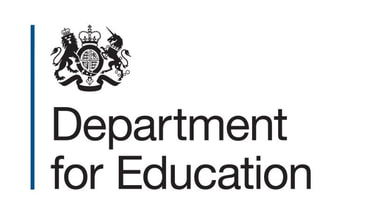




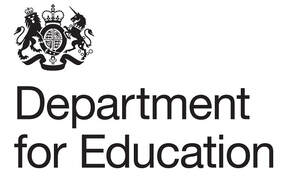
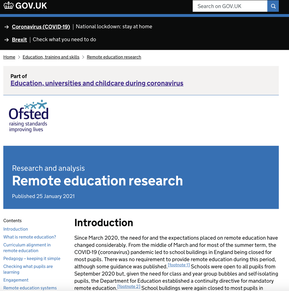





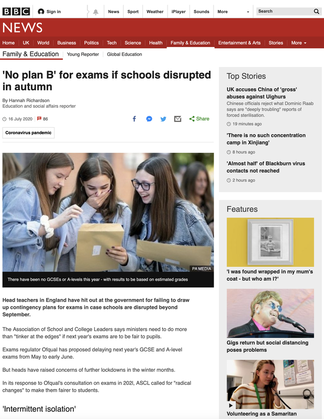
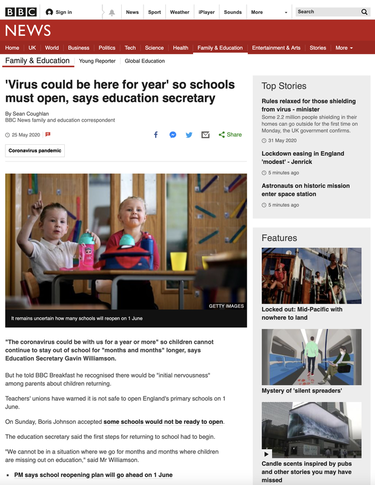
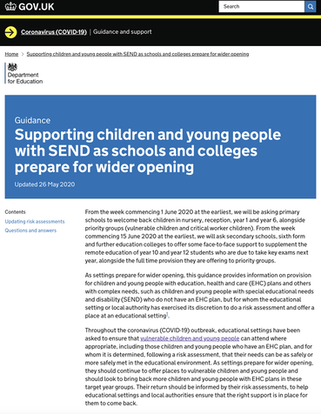









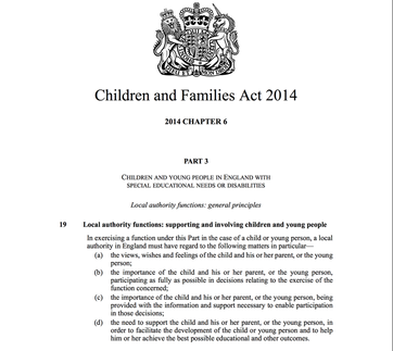


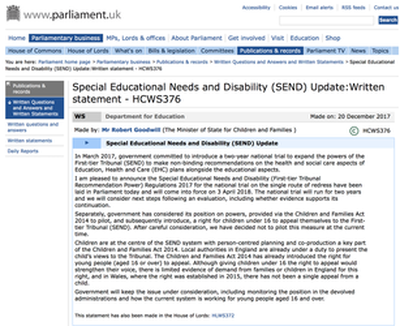




 RSS Feed
RSS Feed







